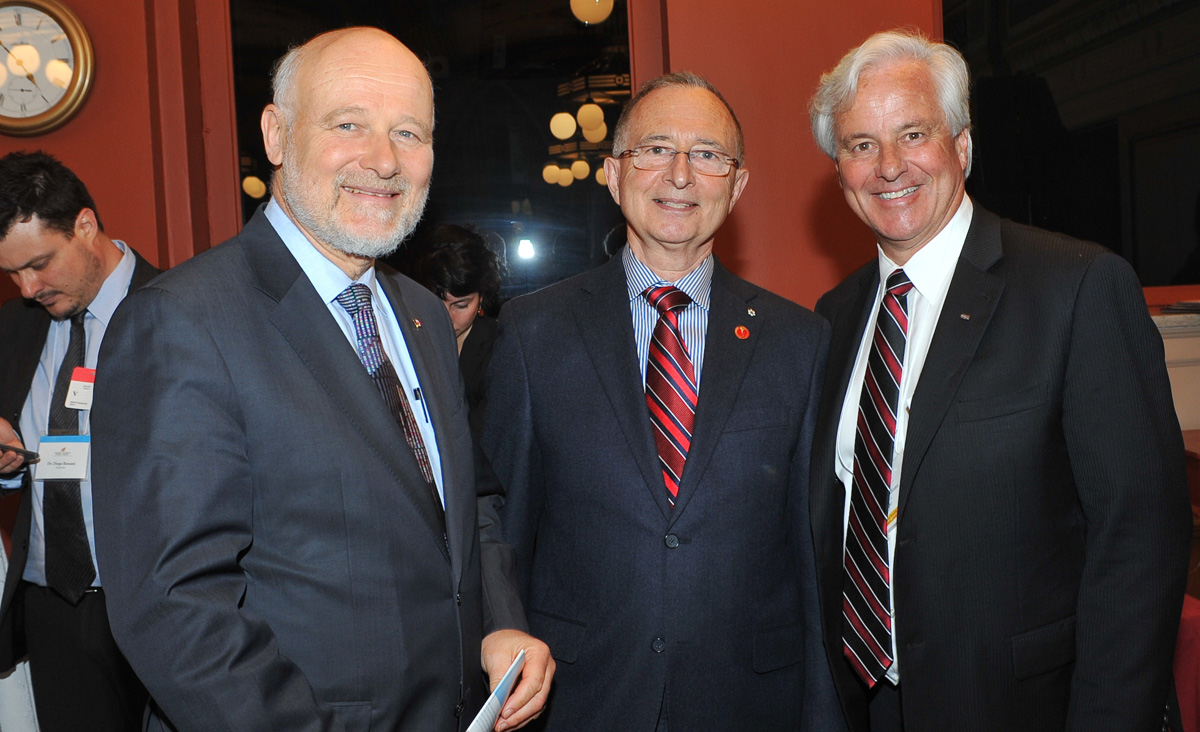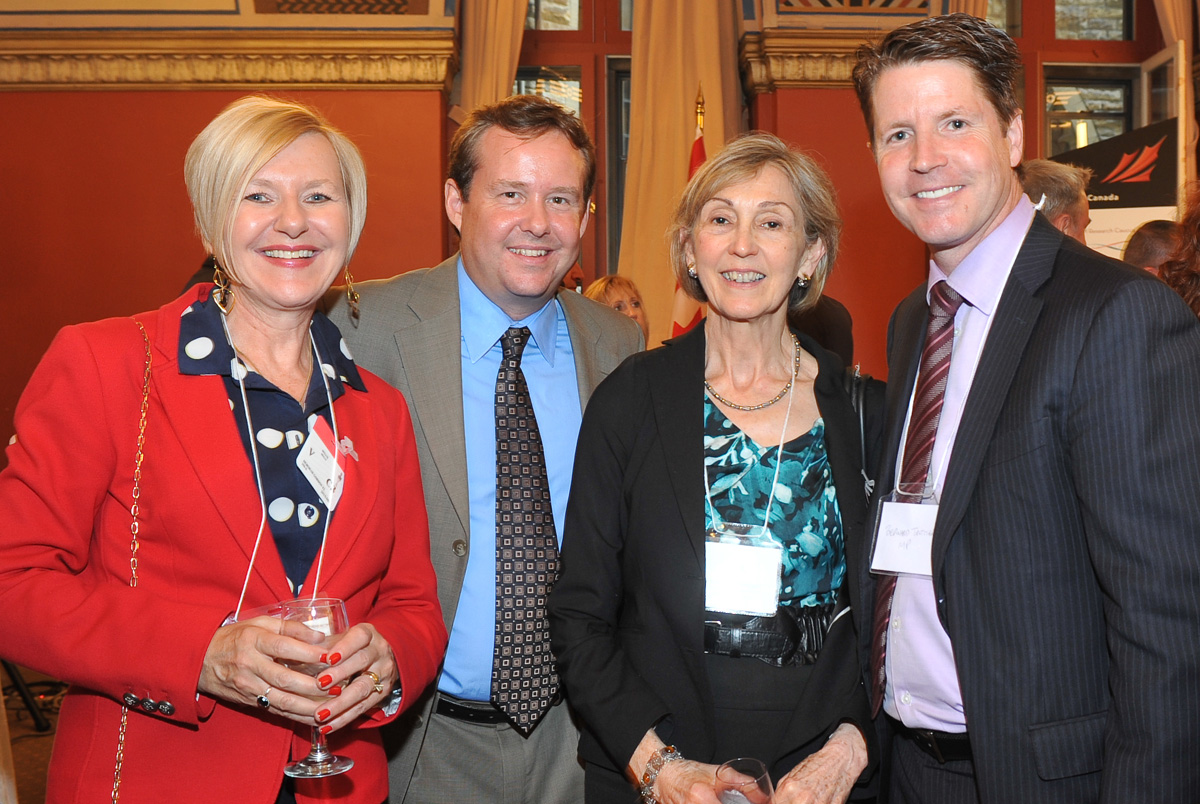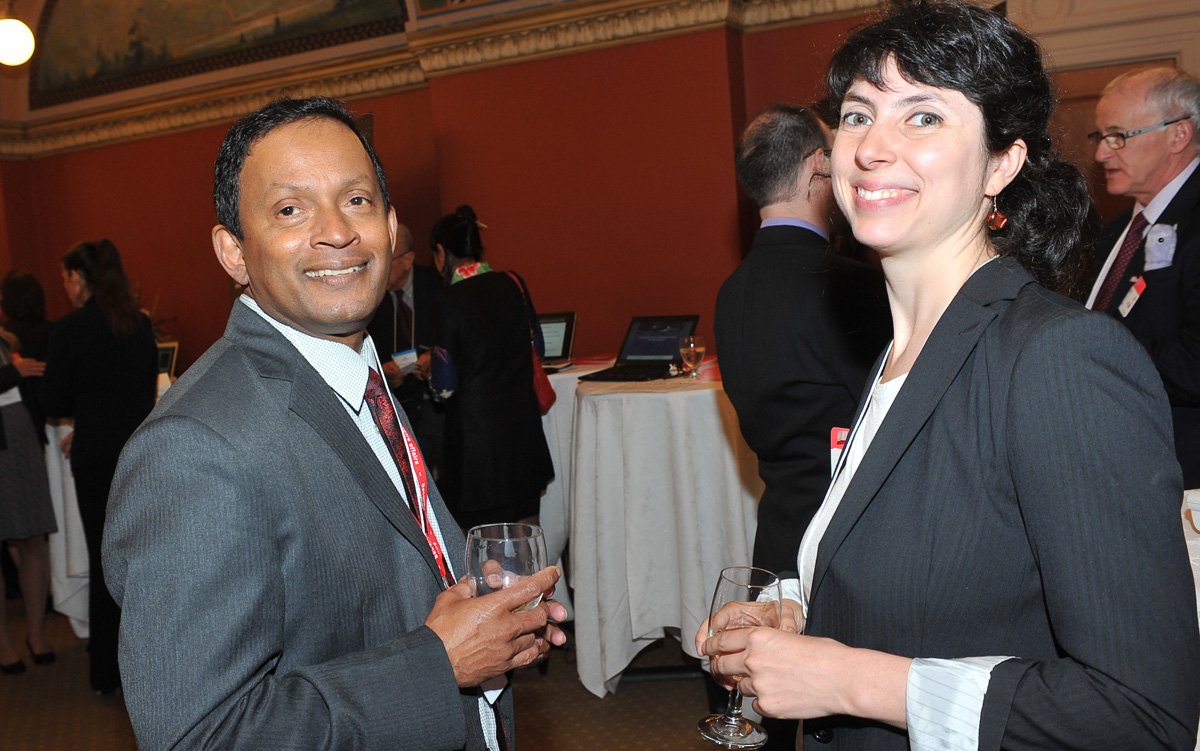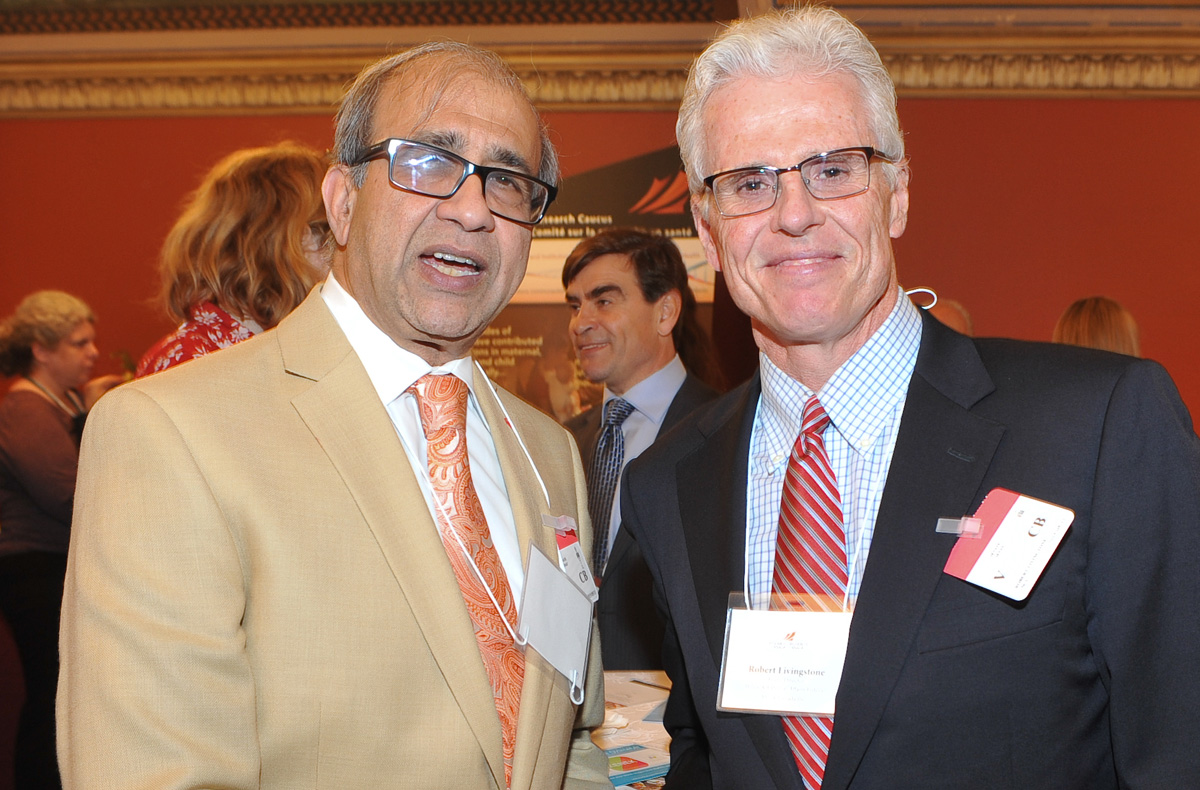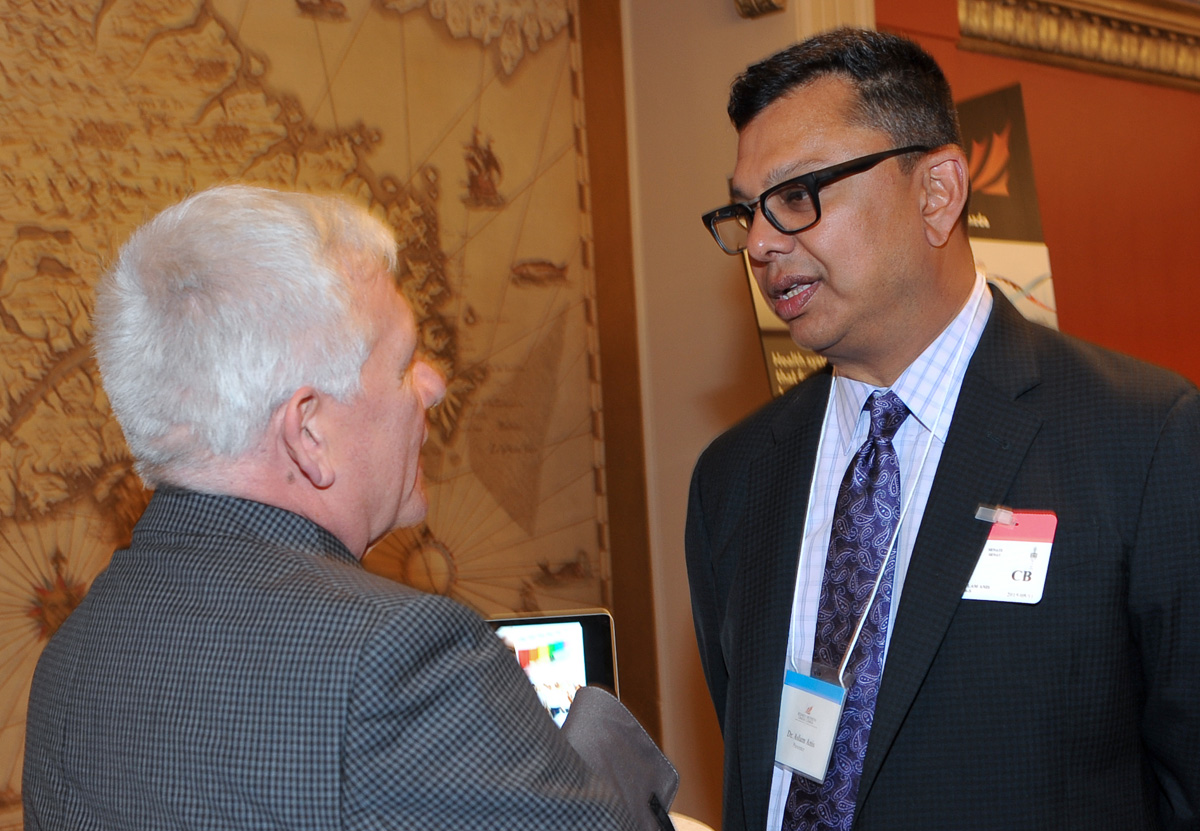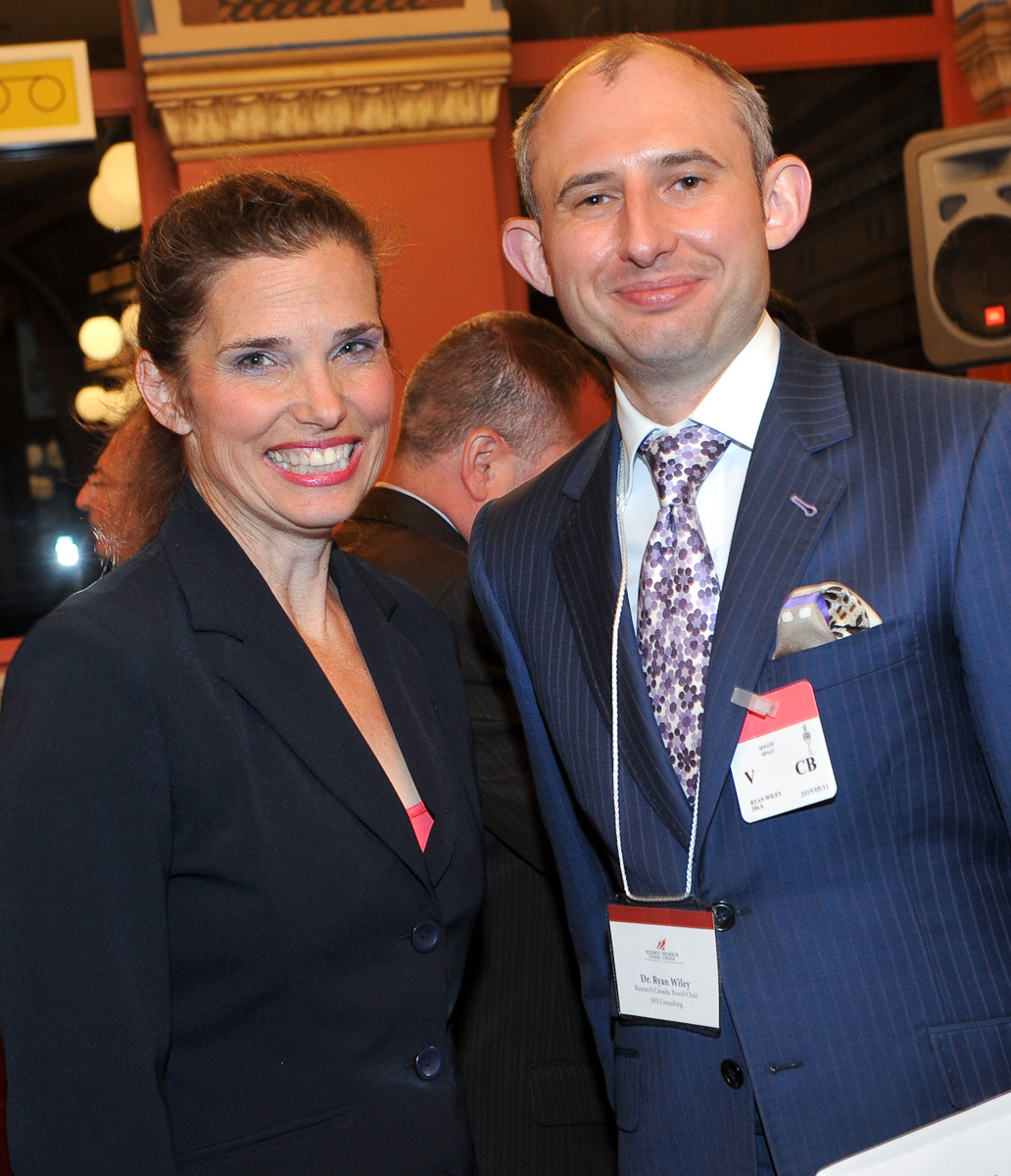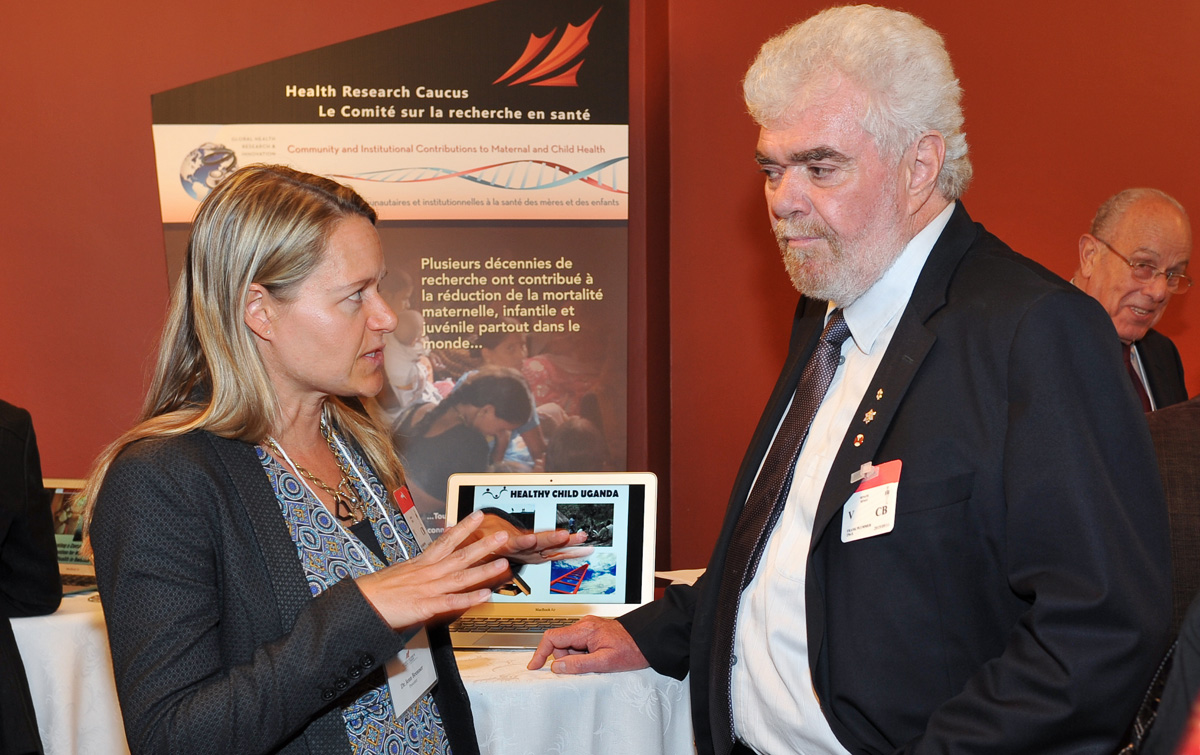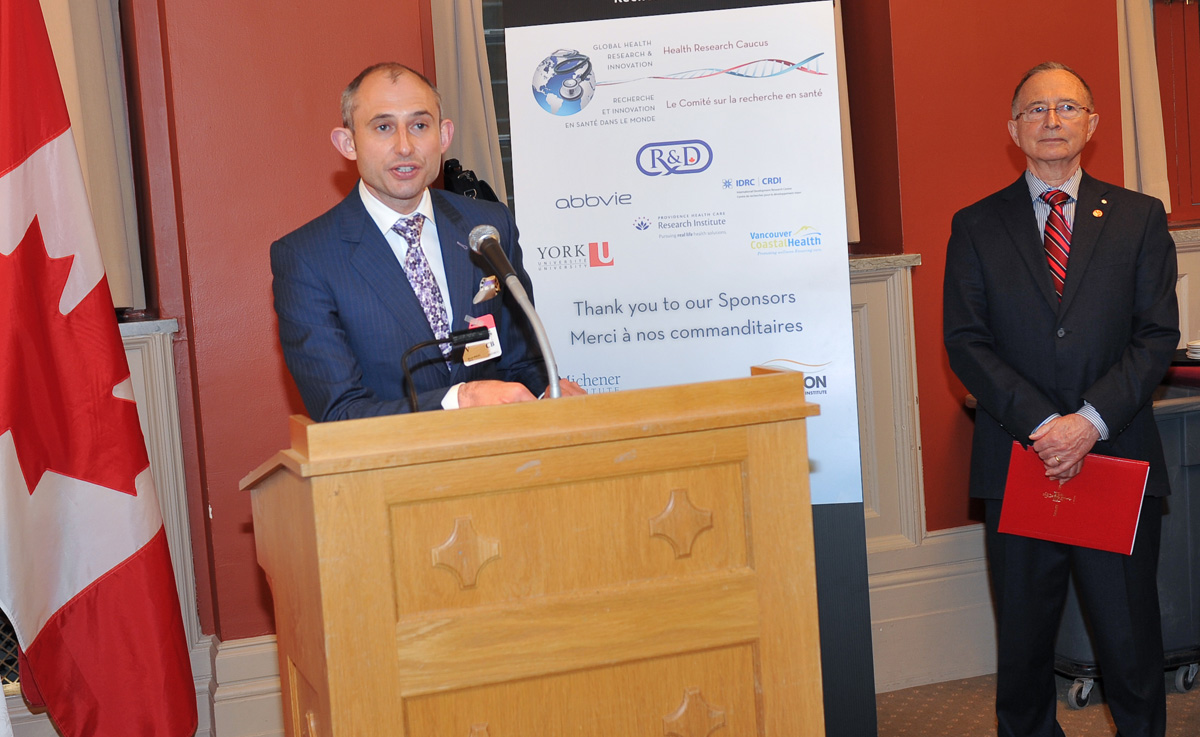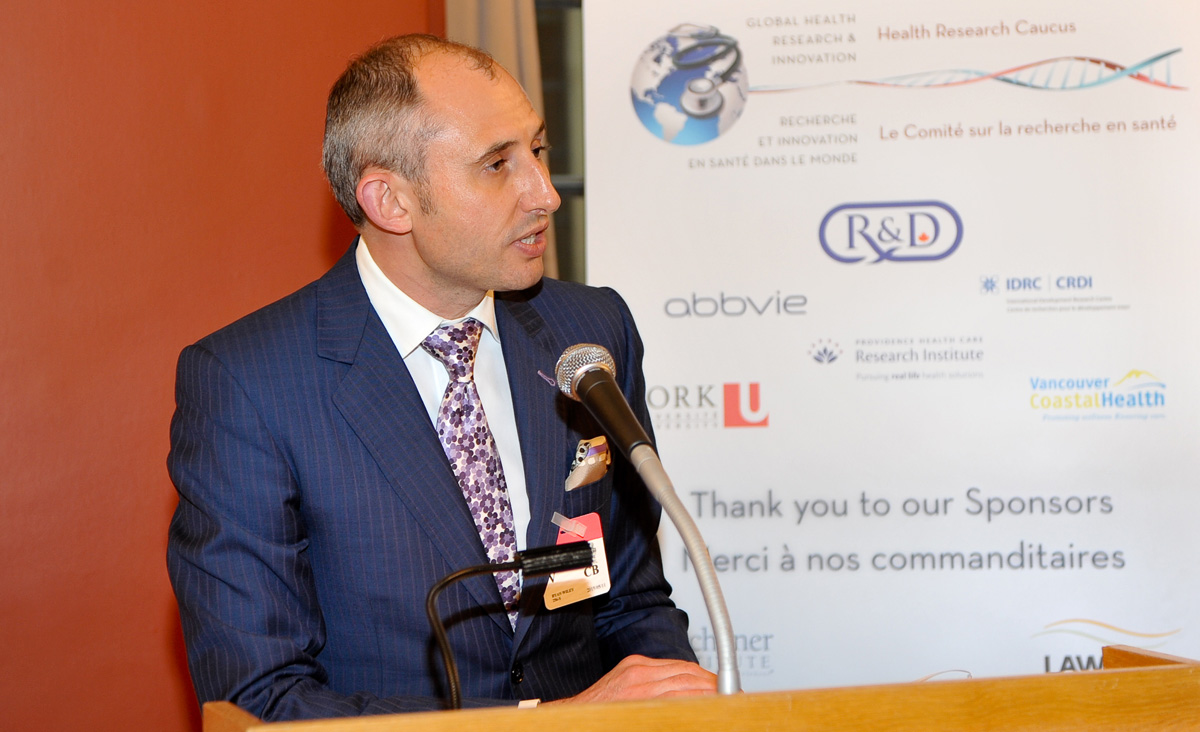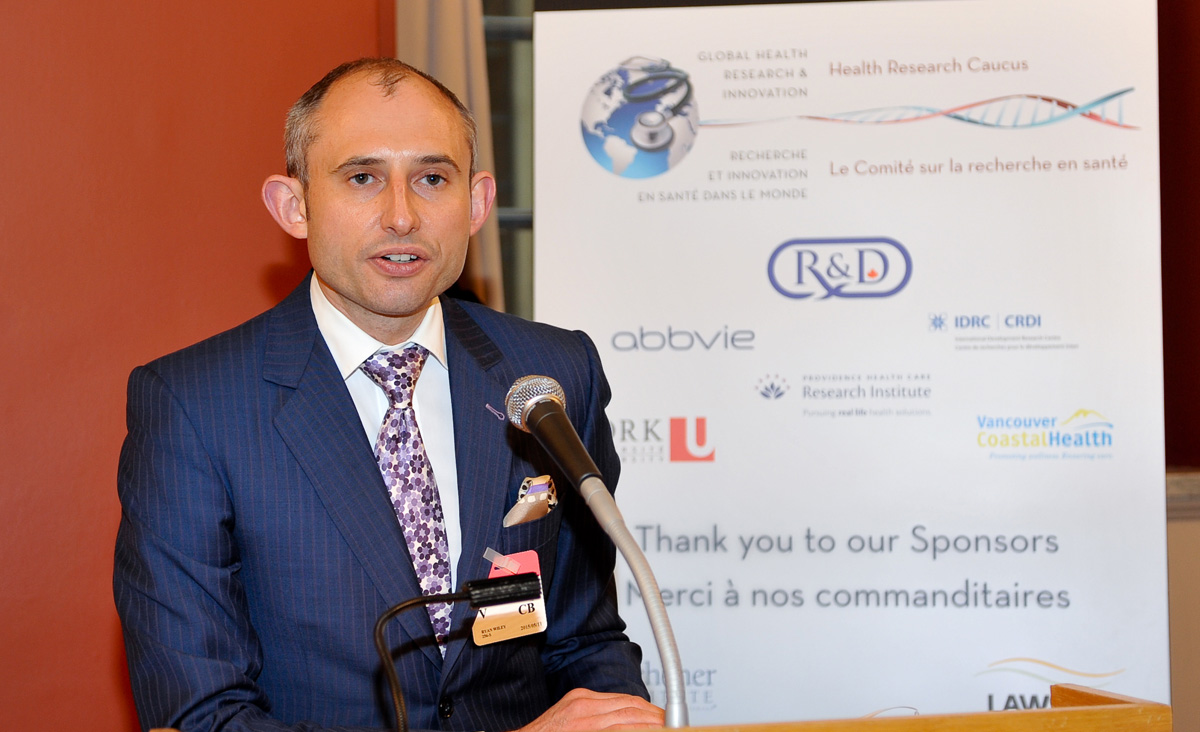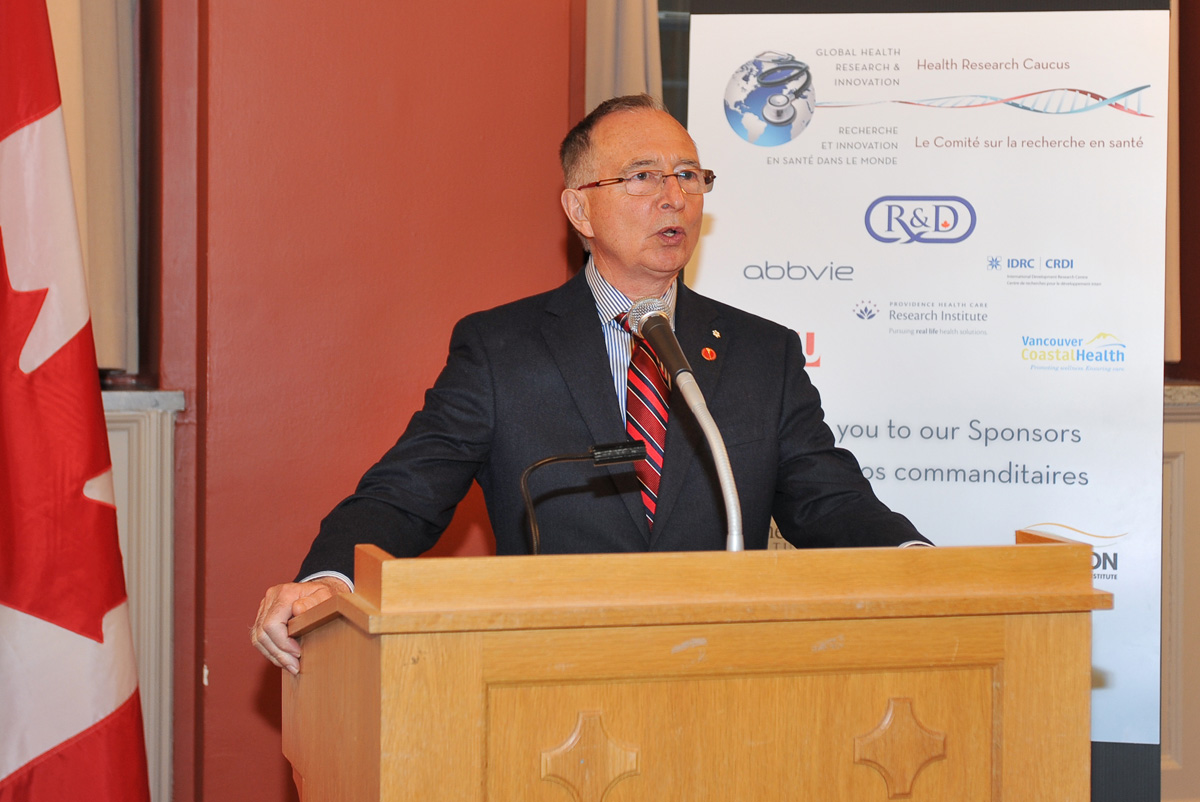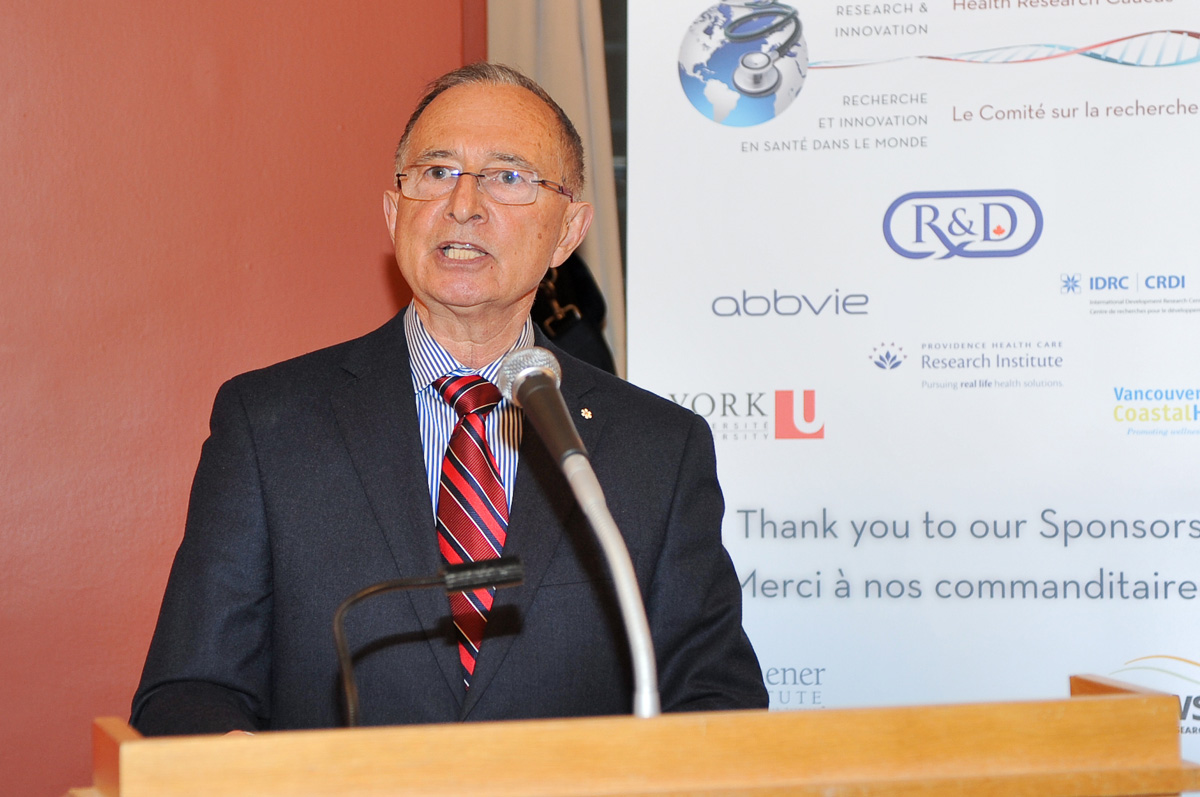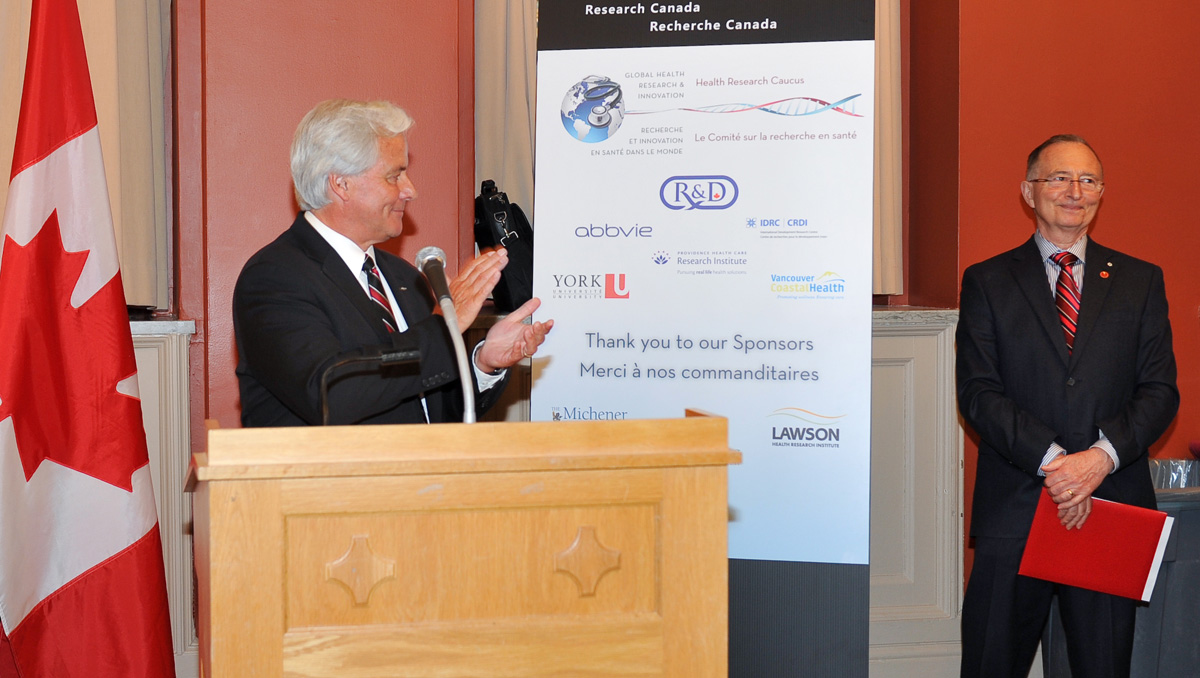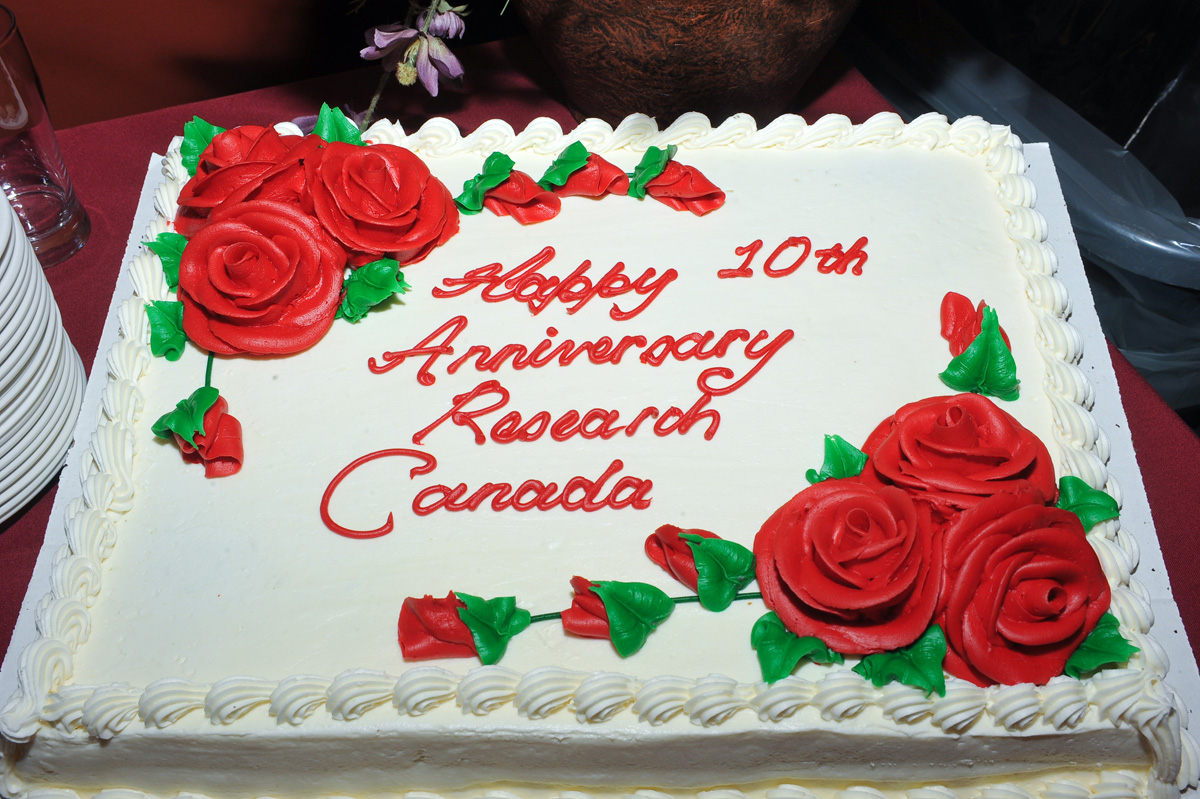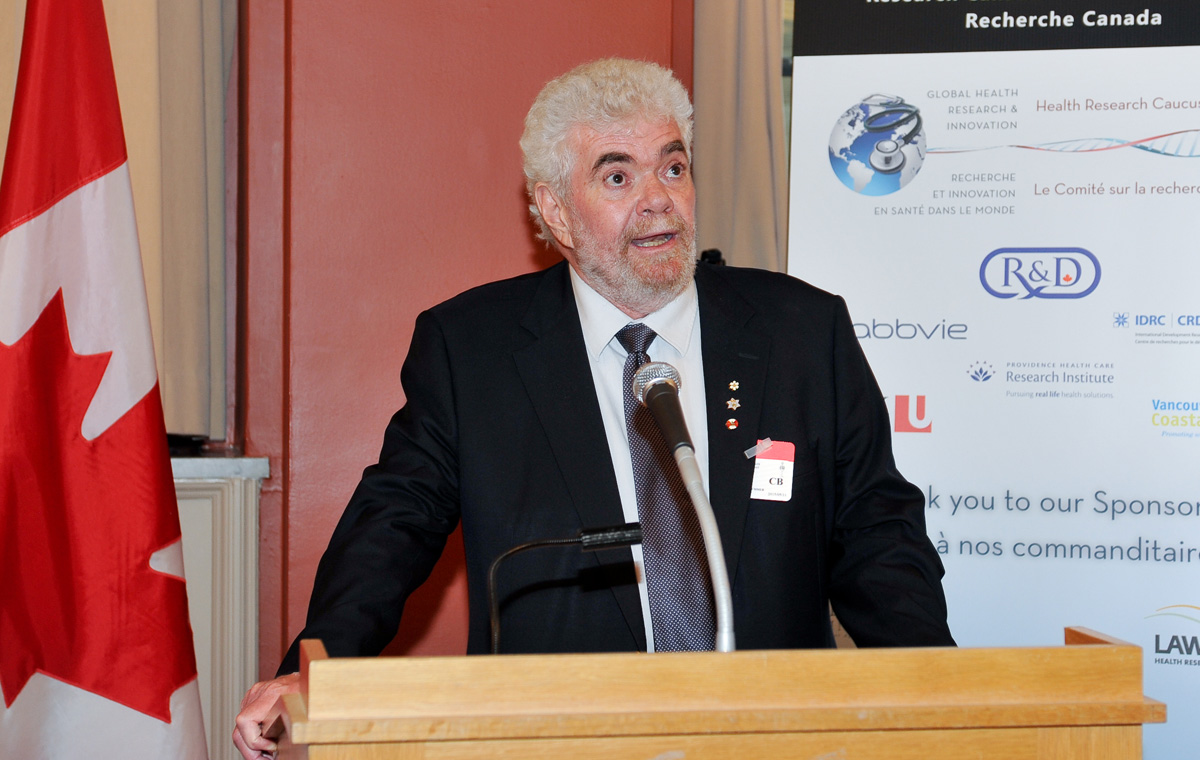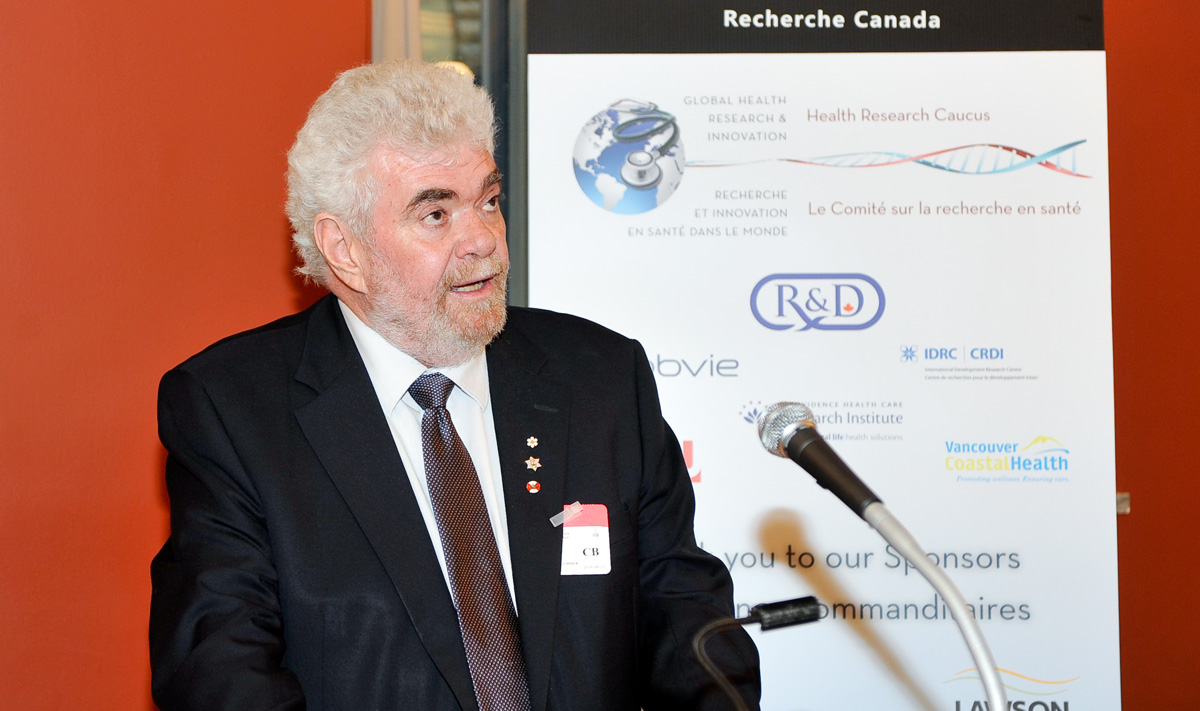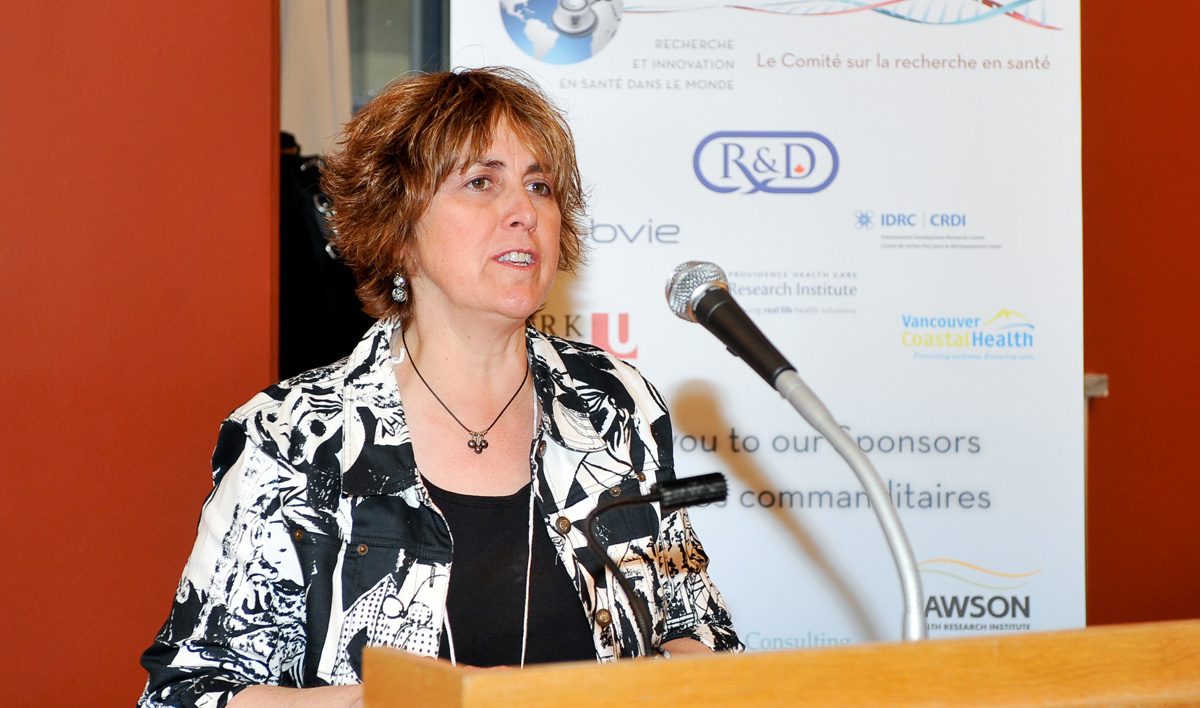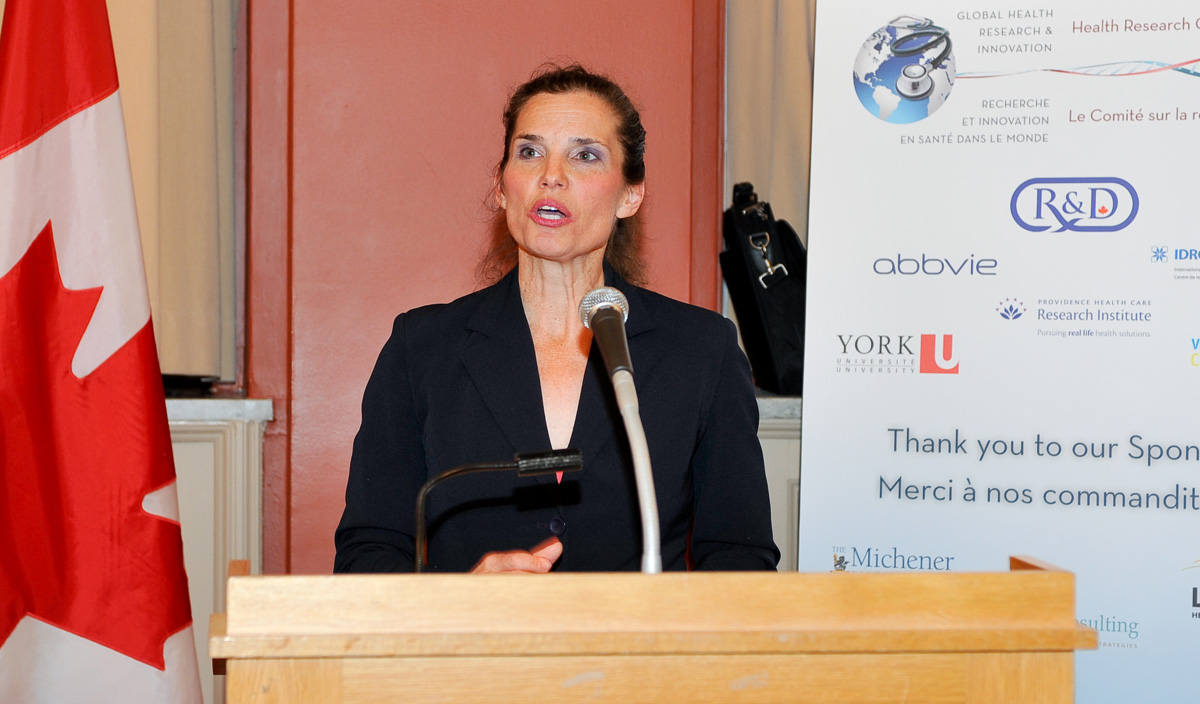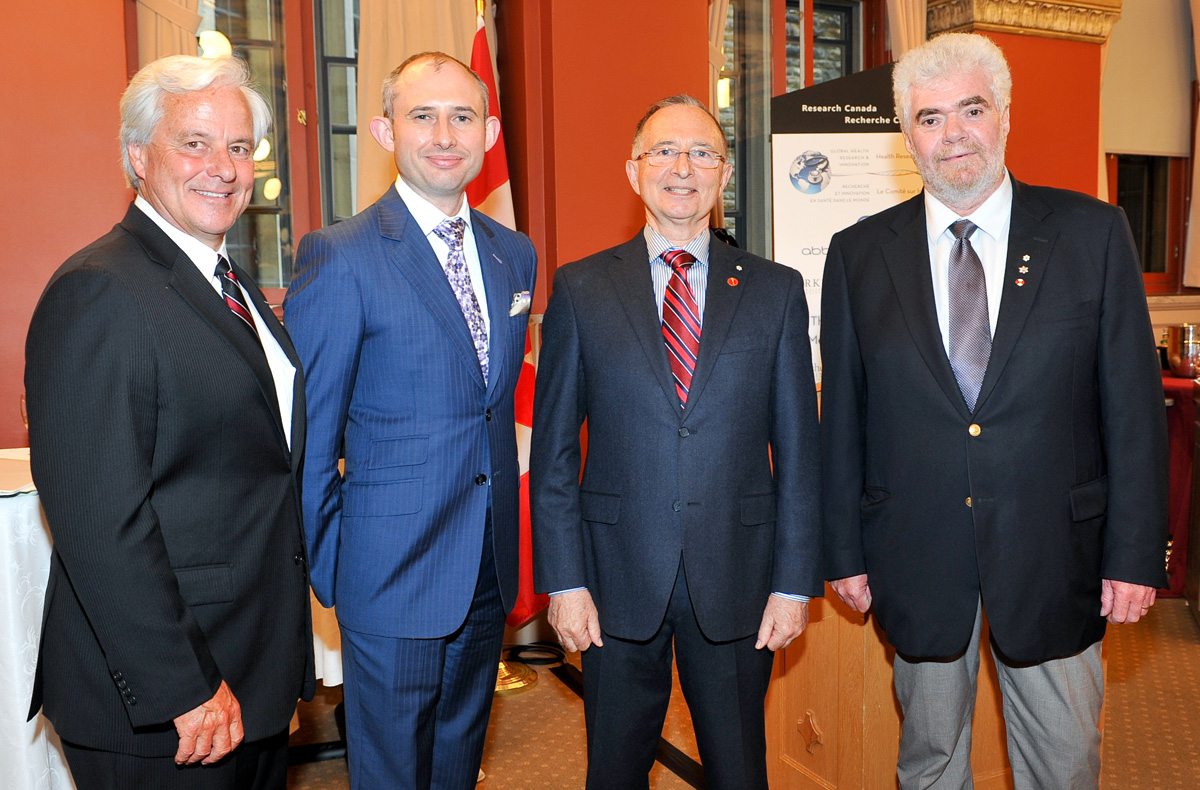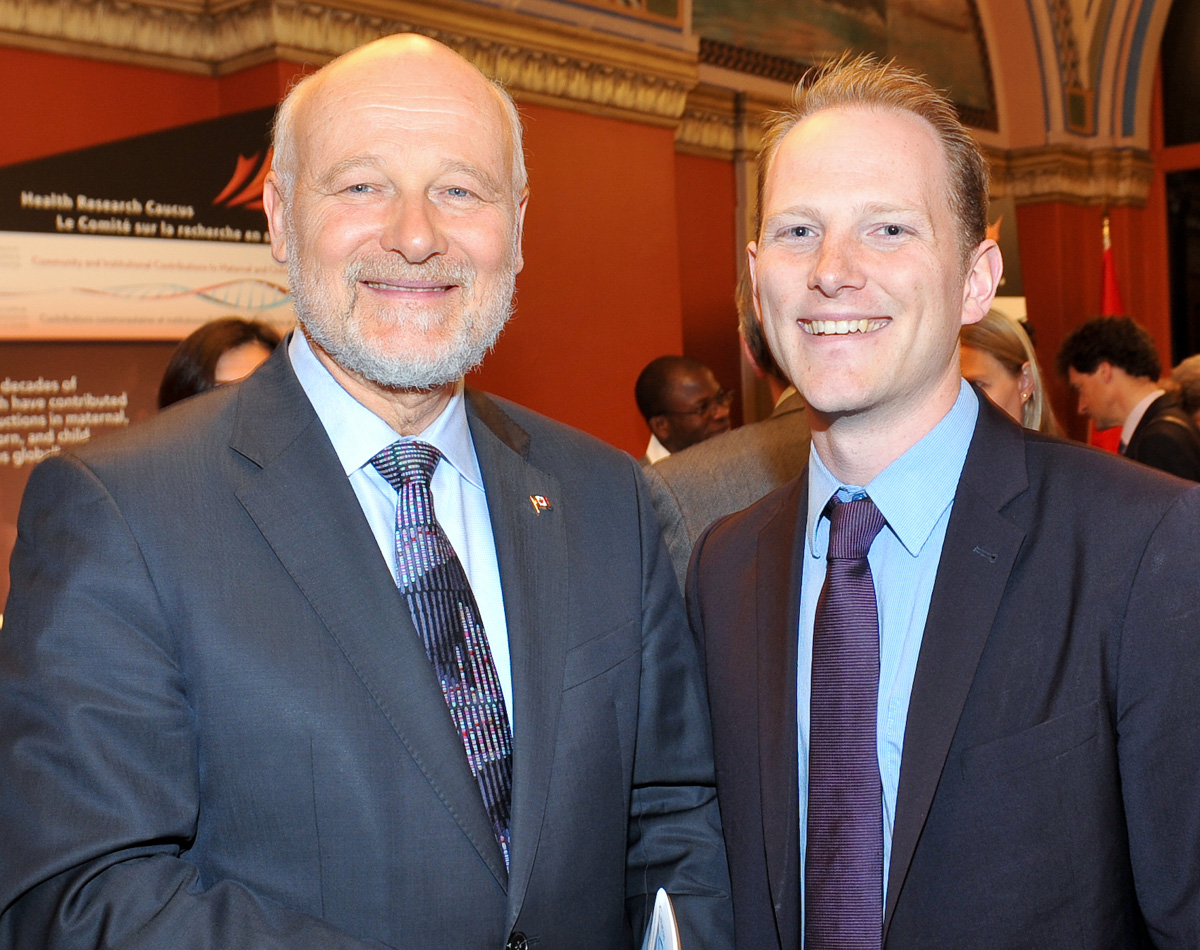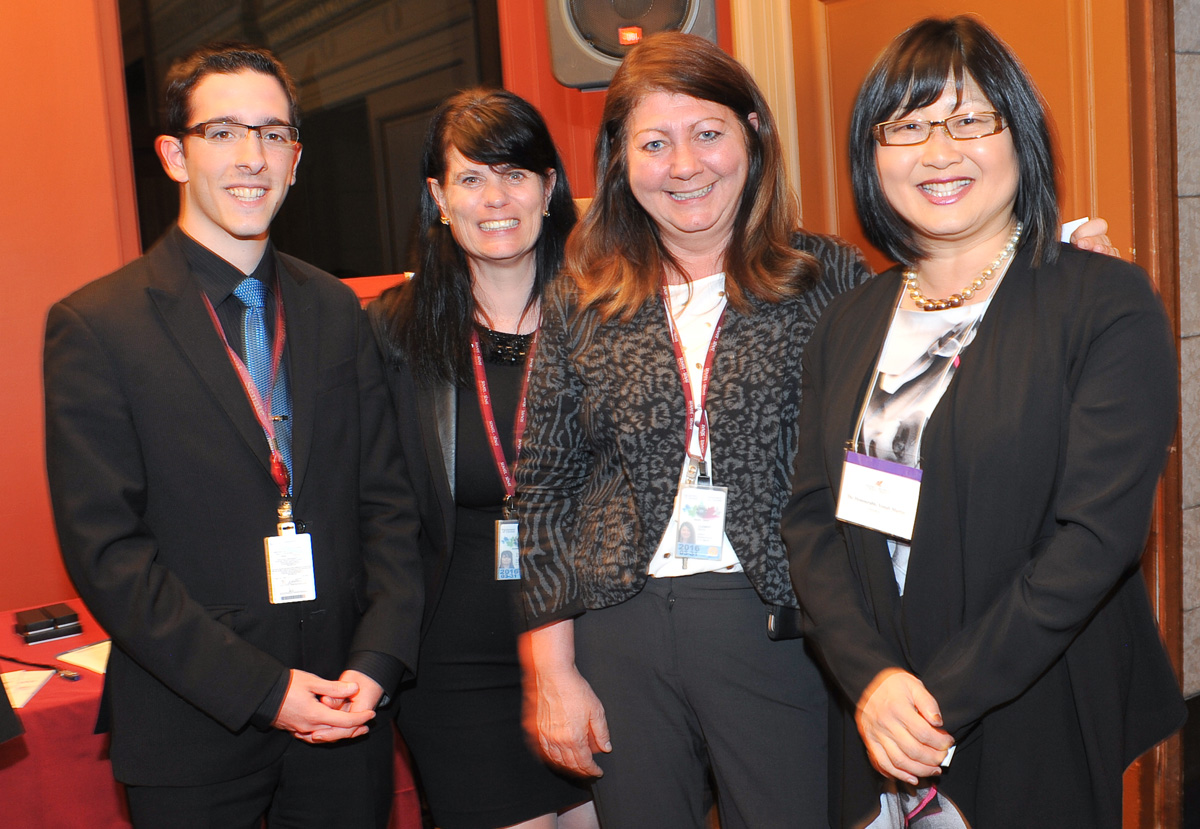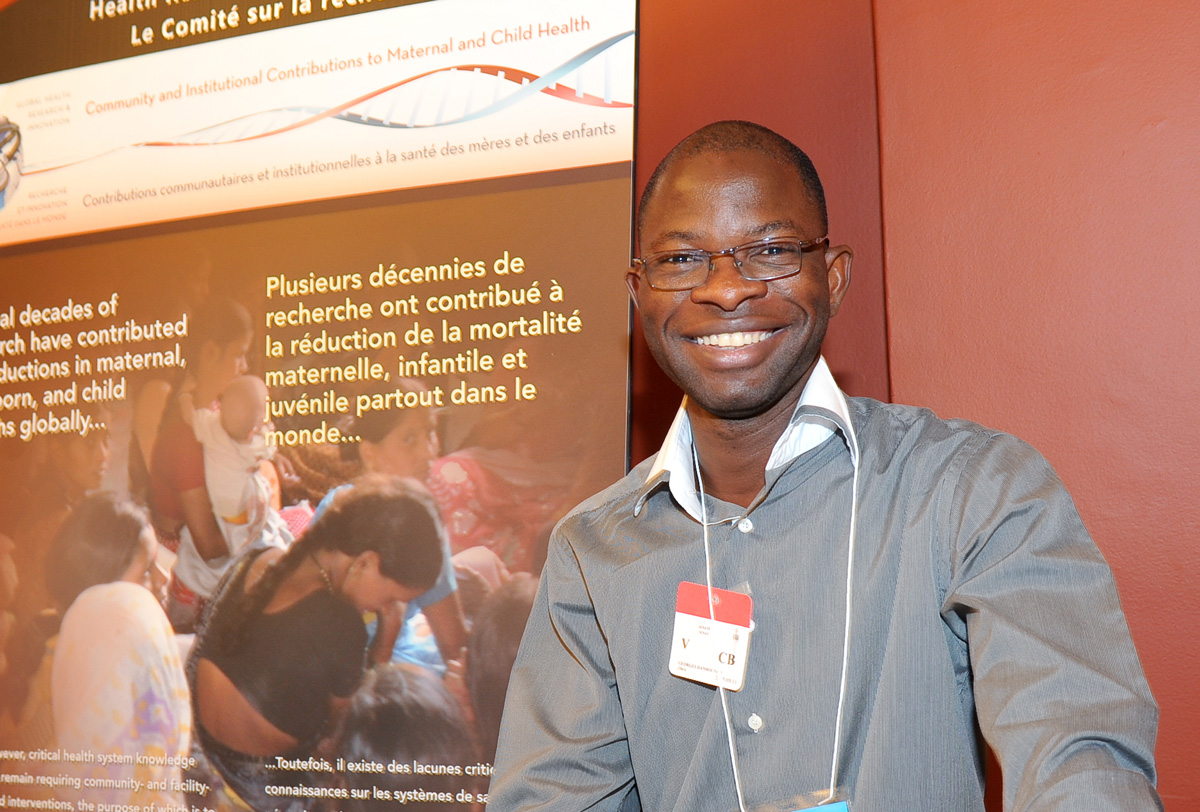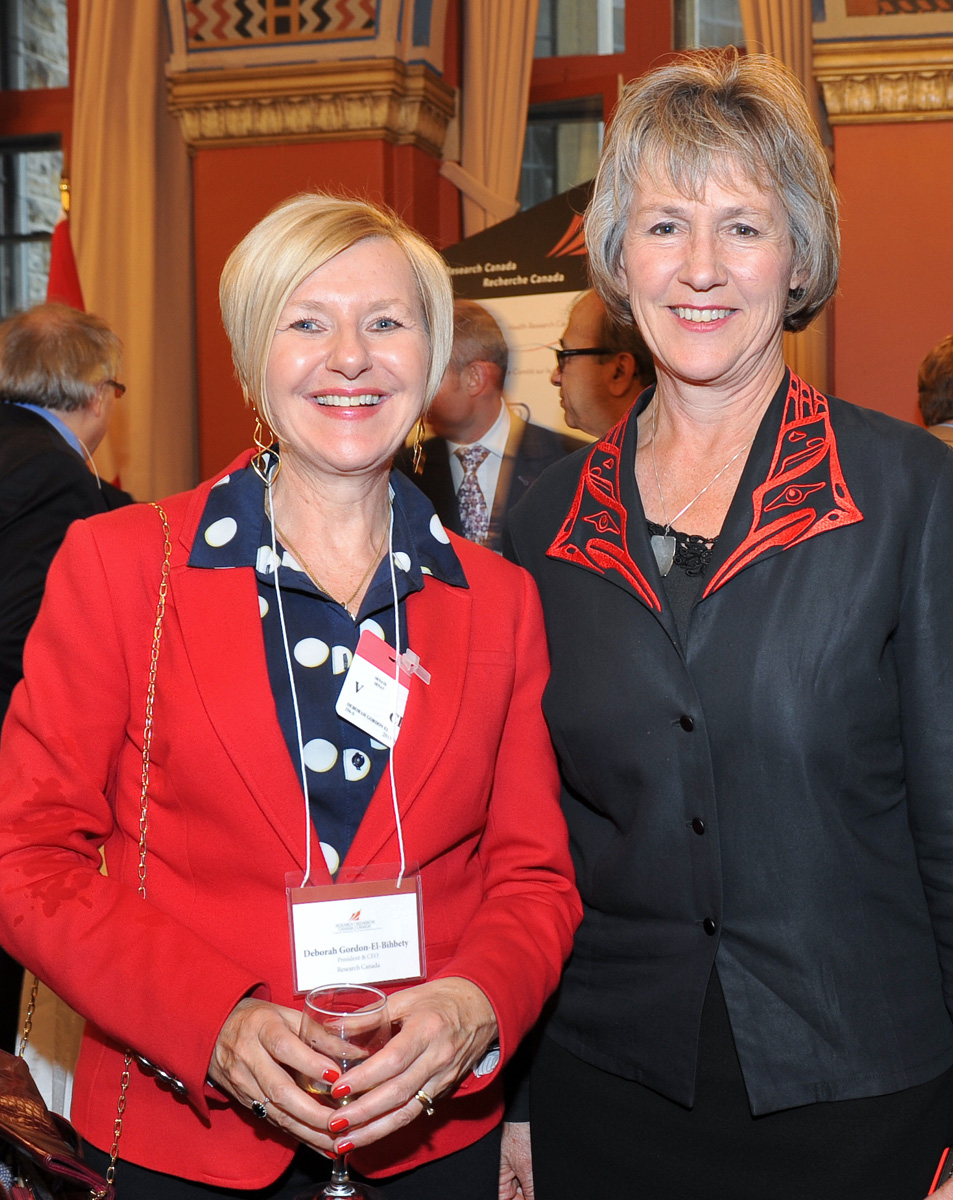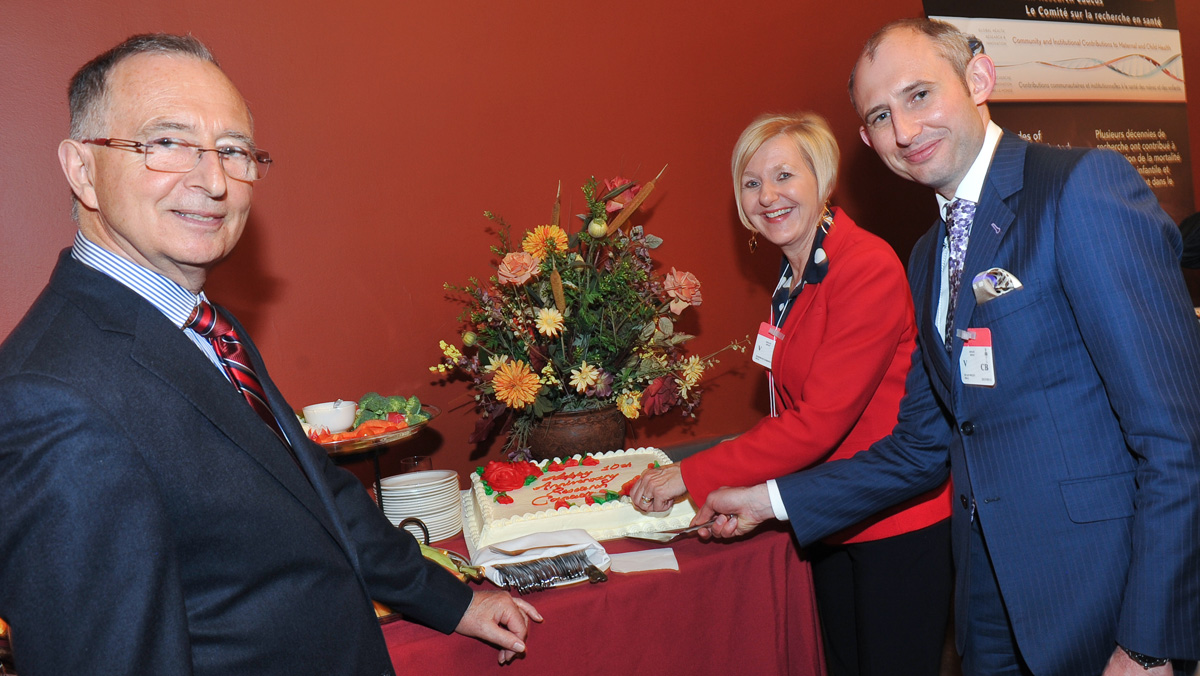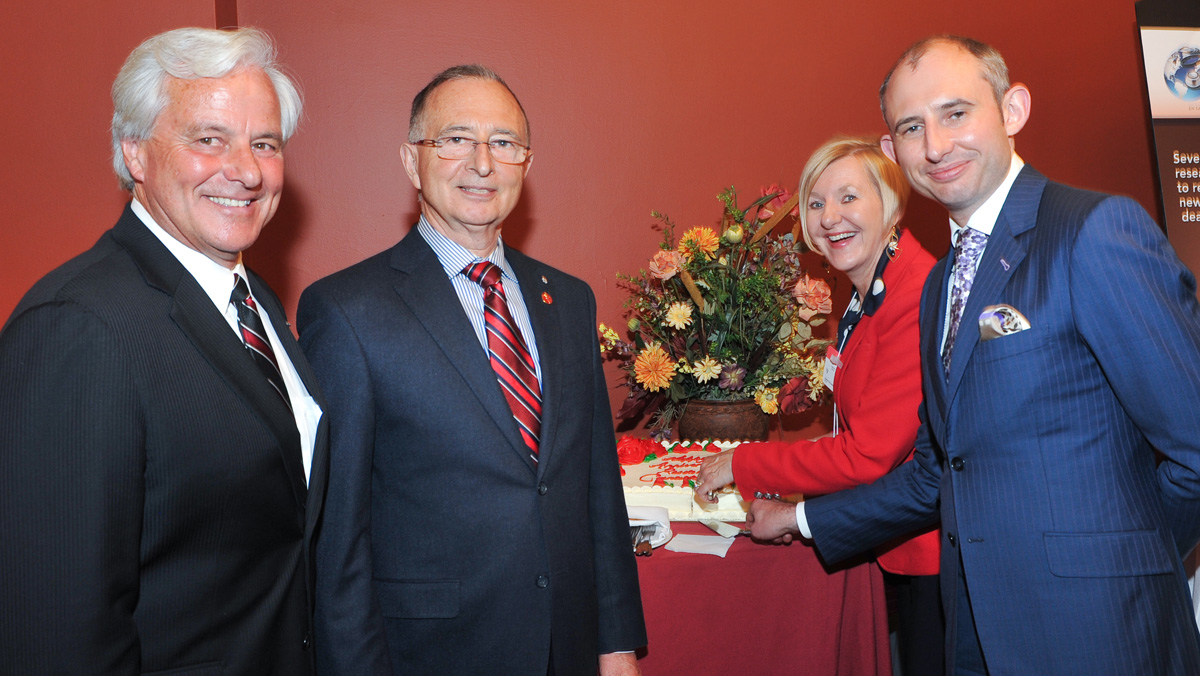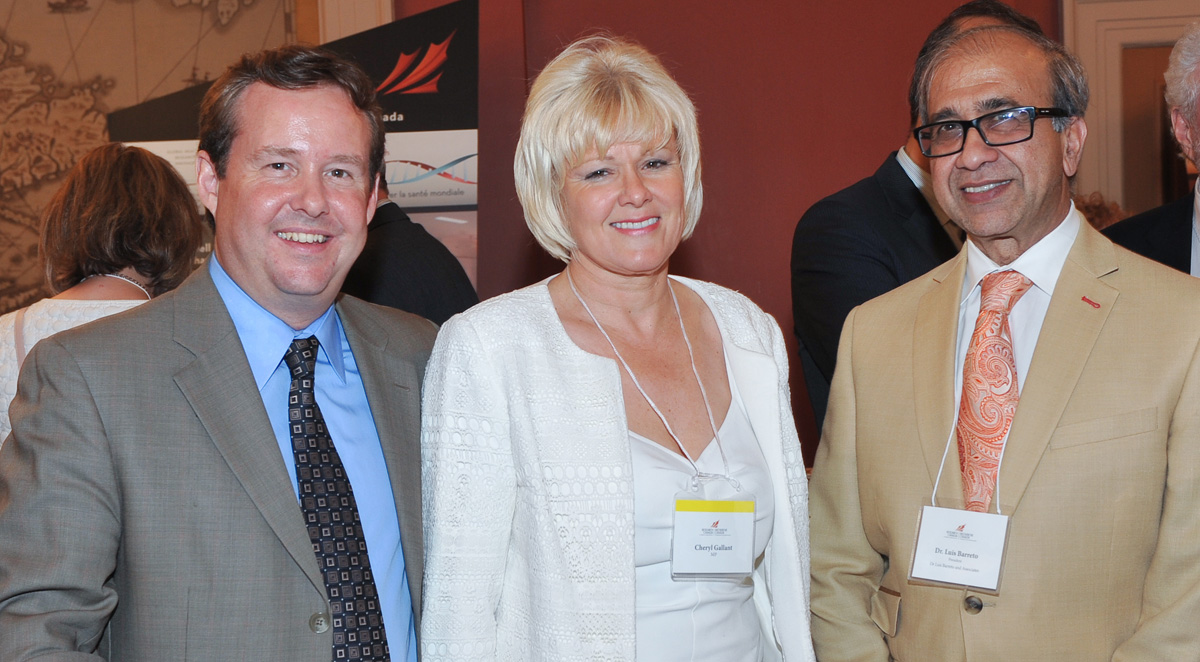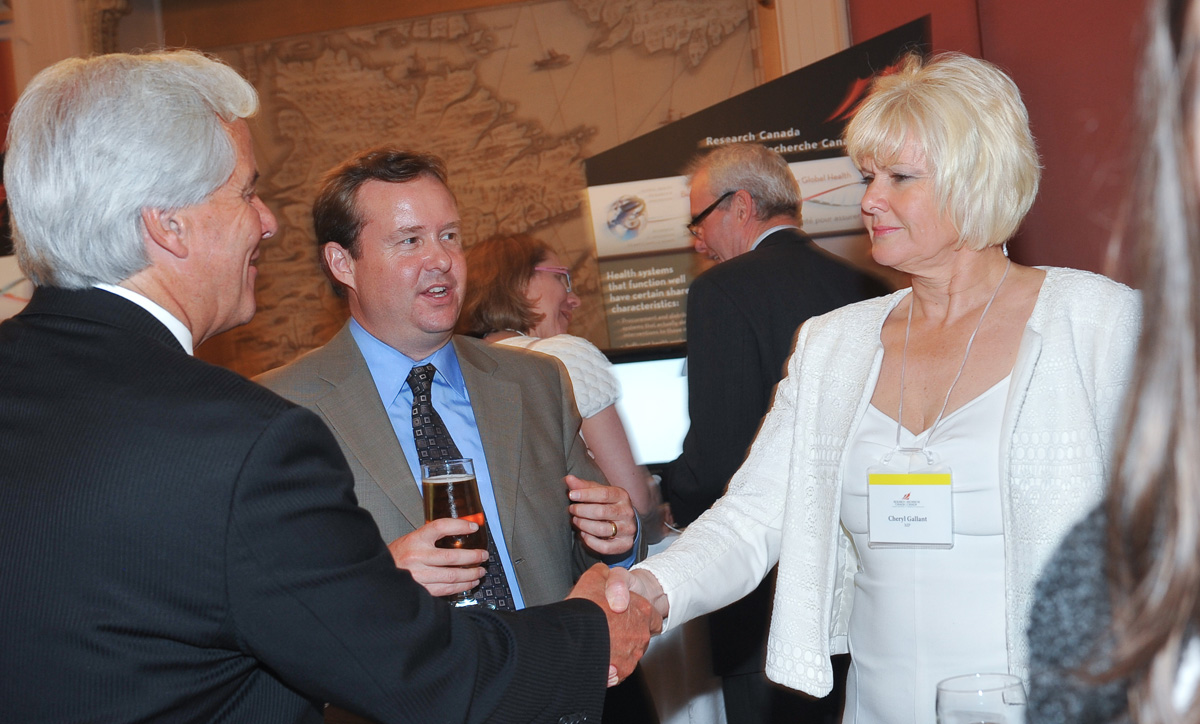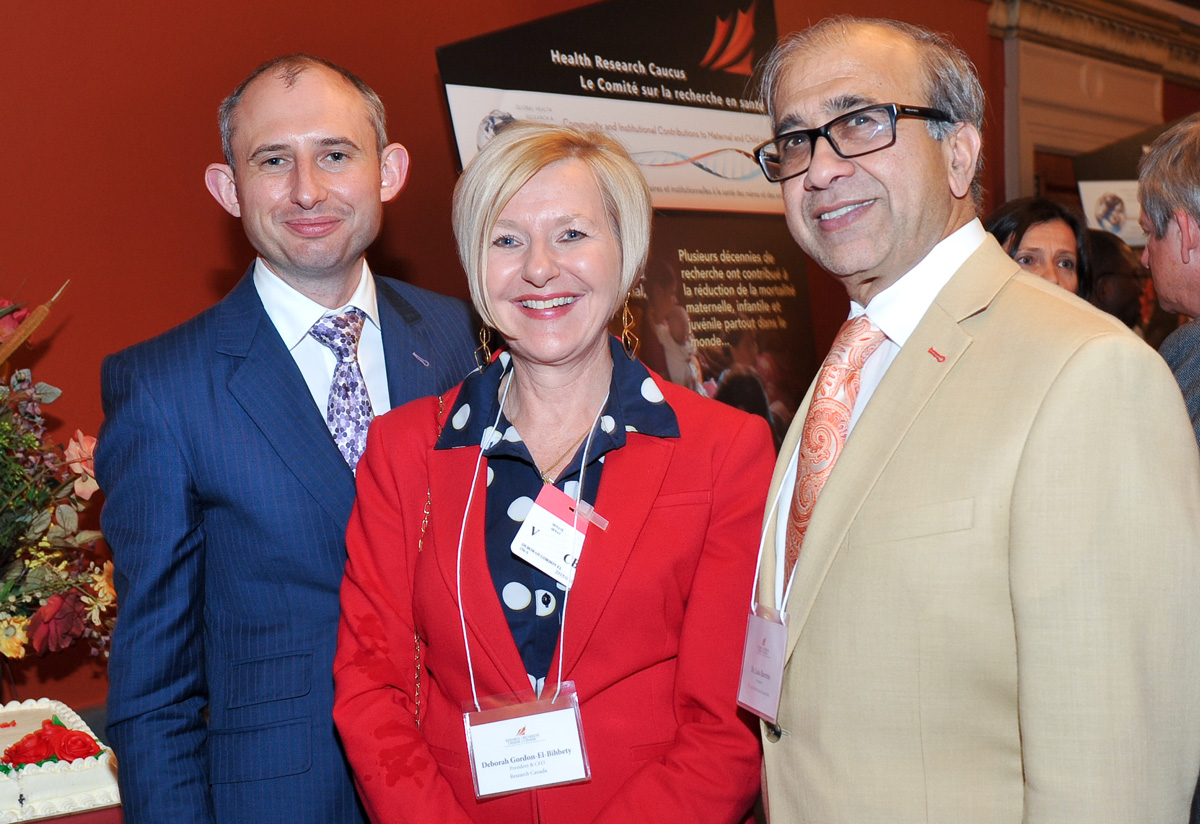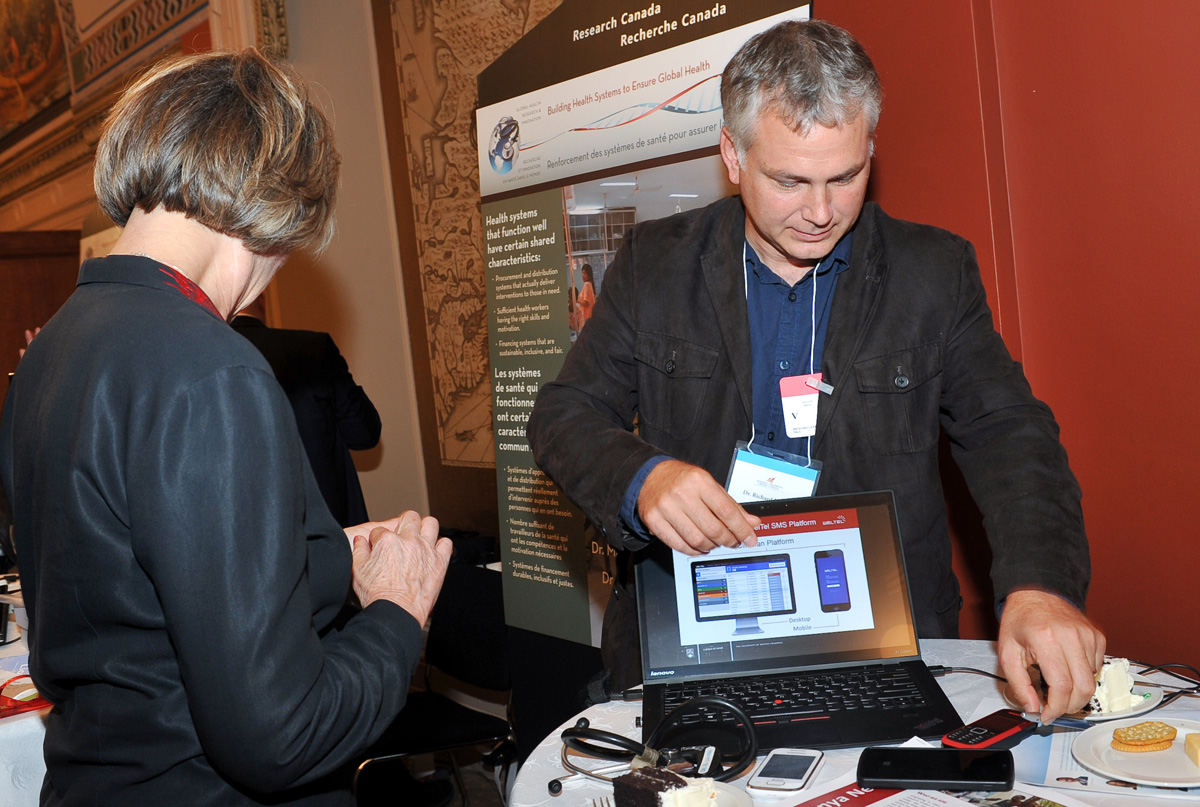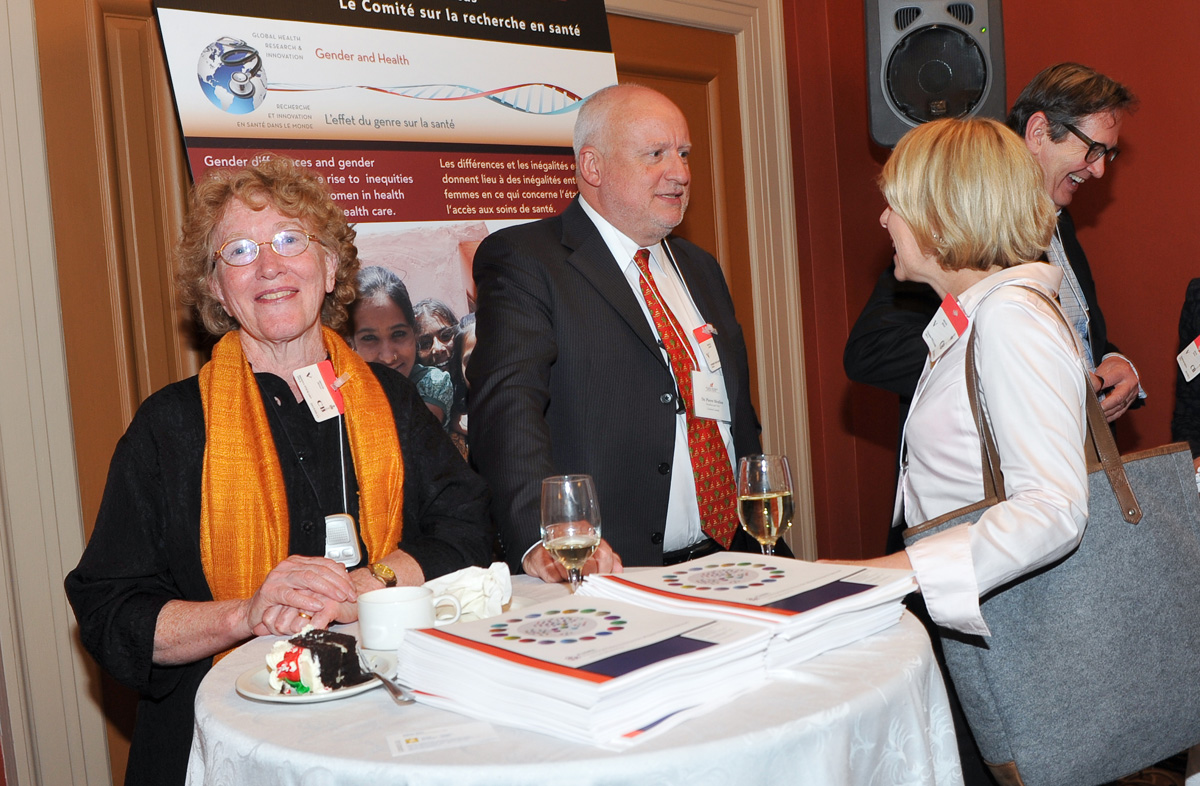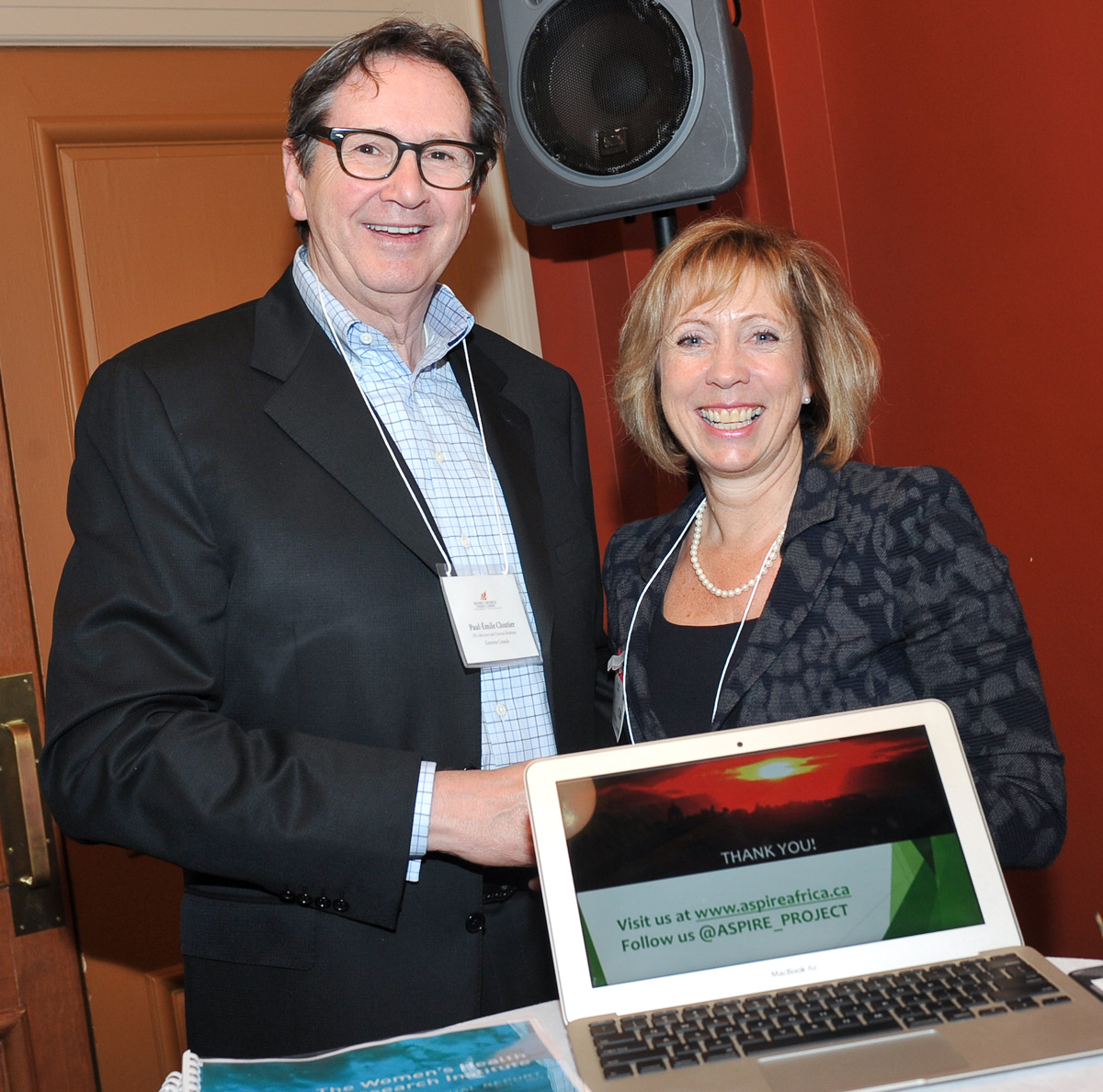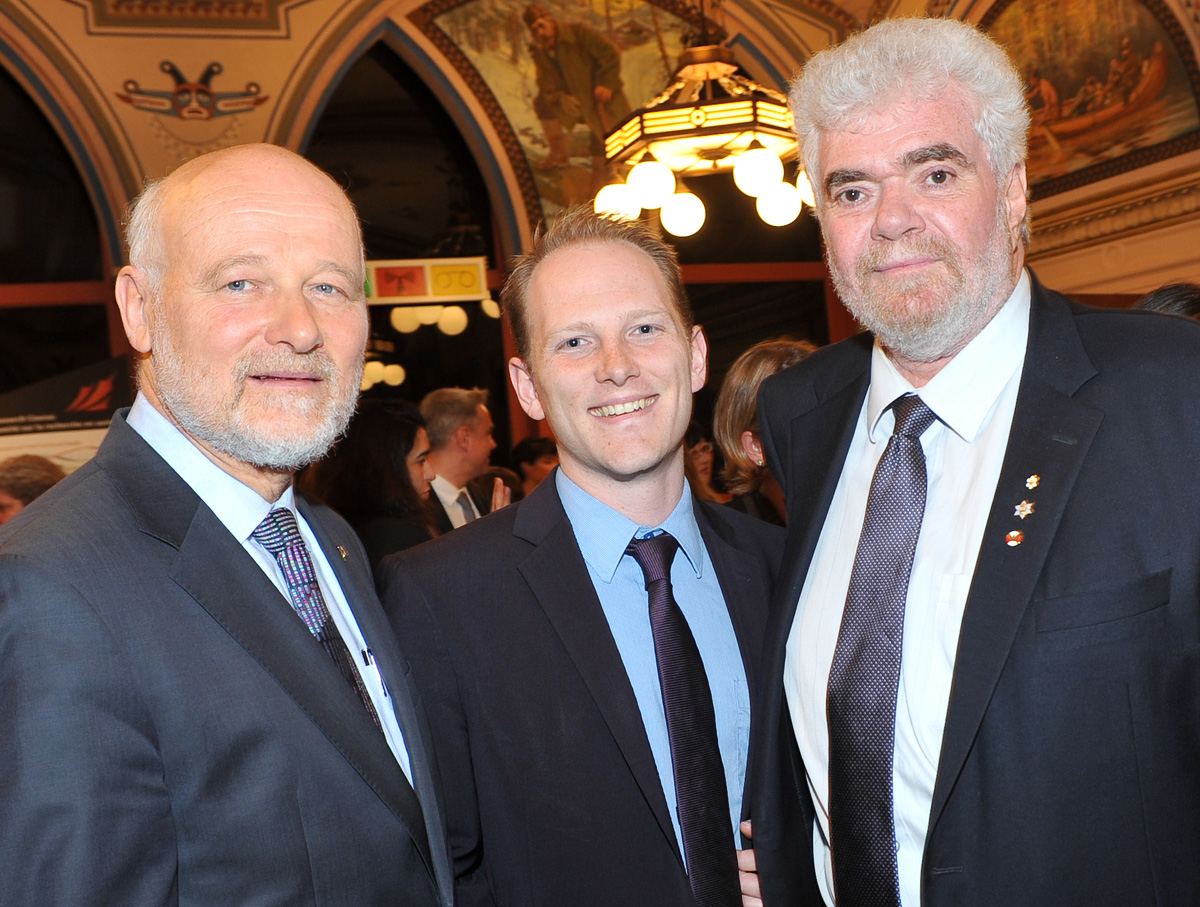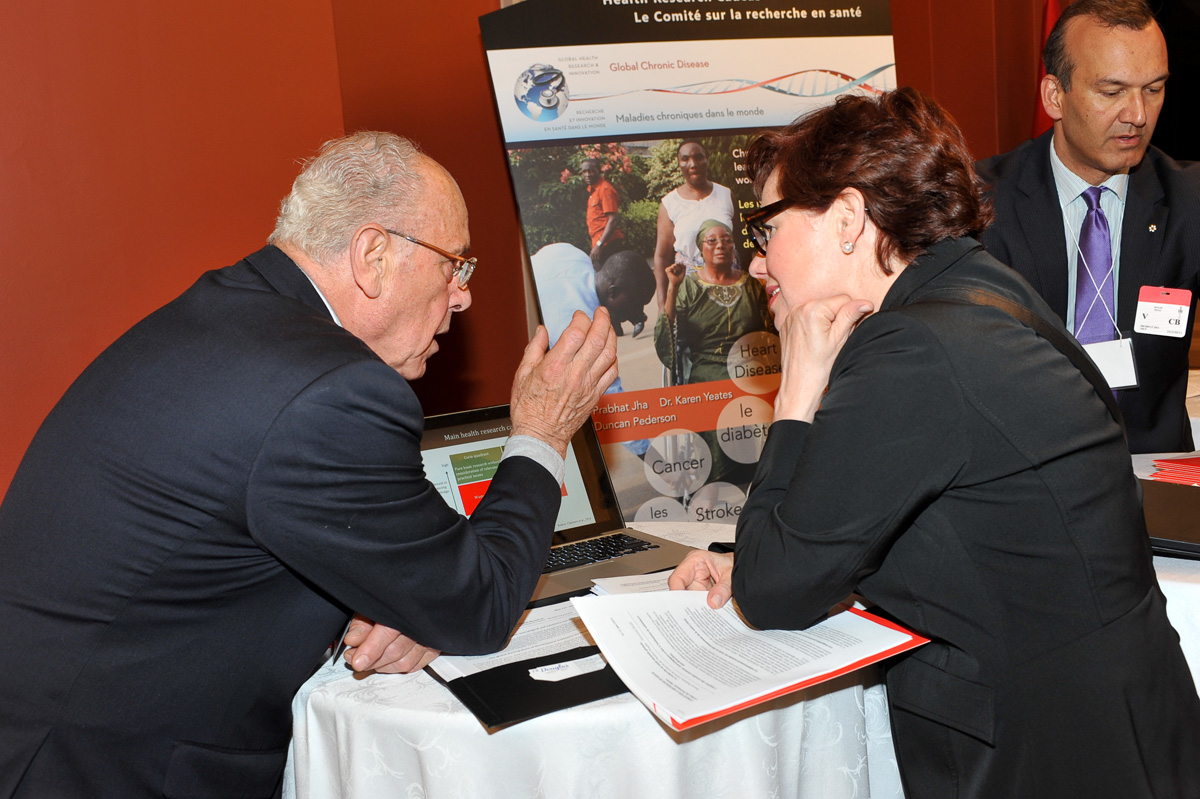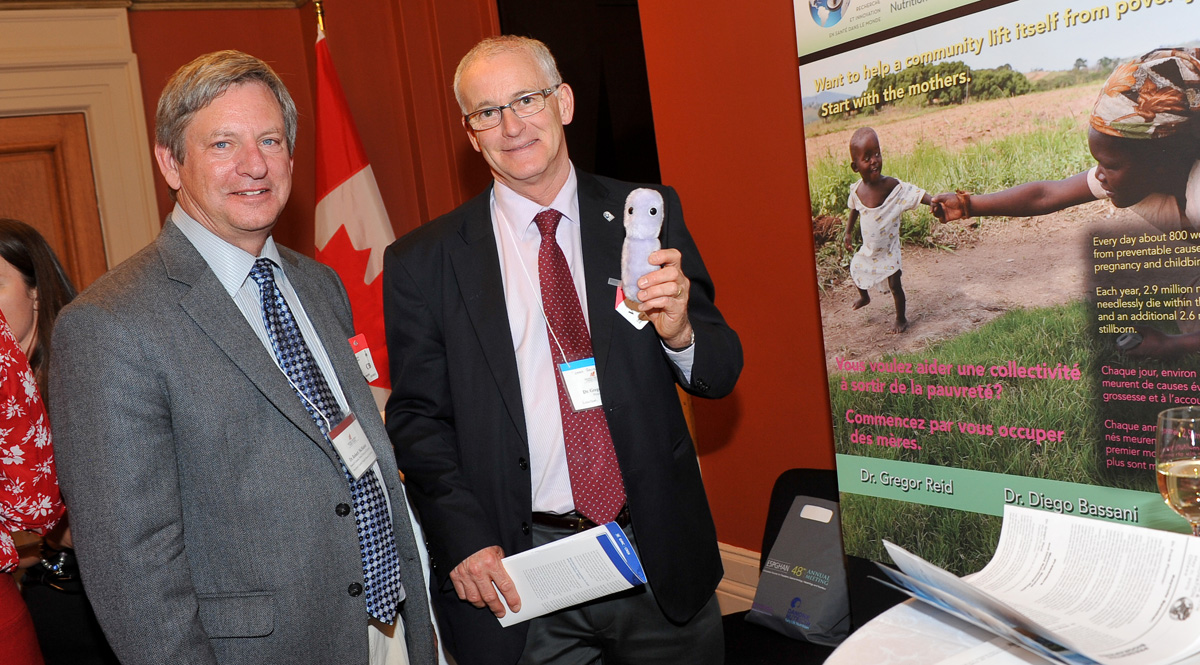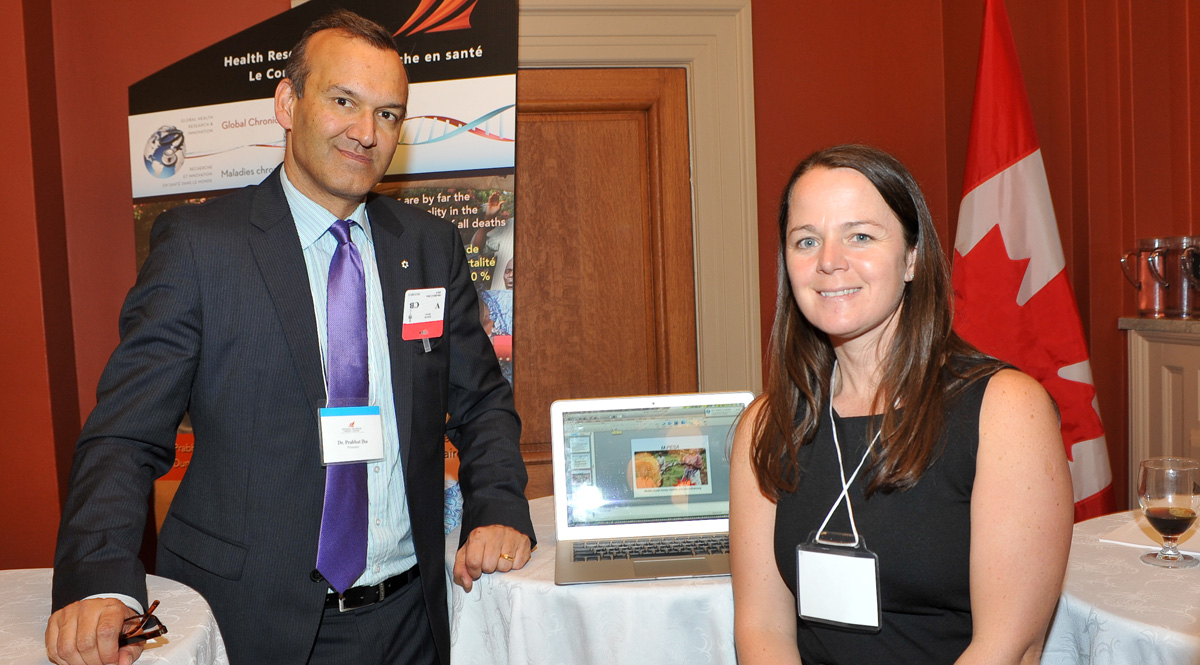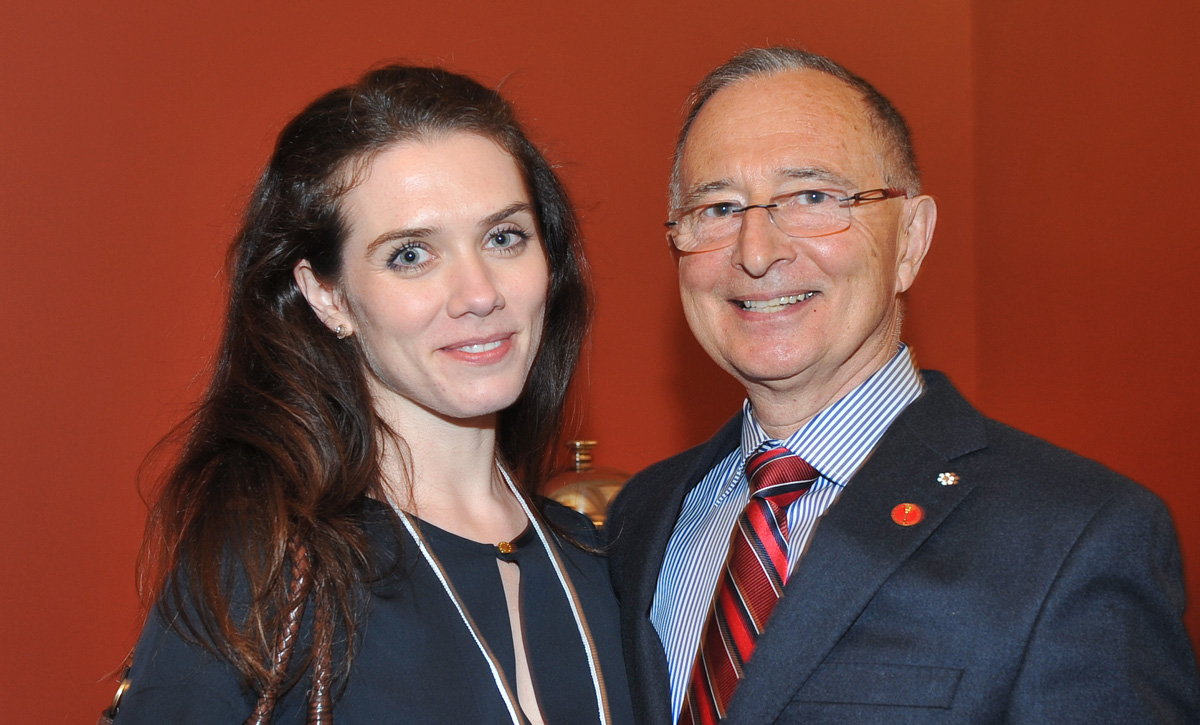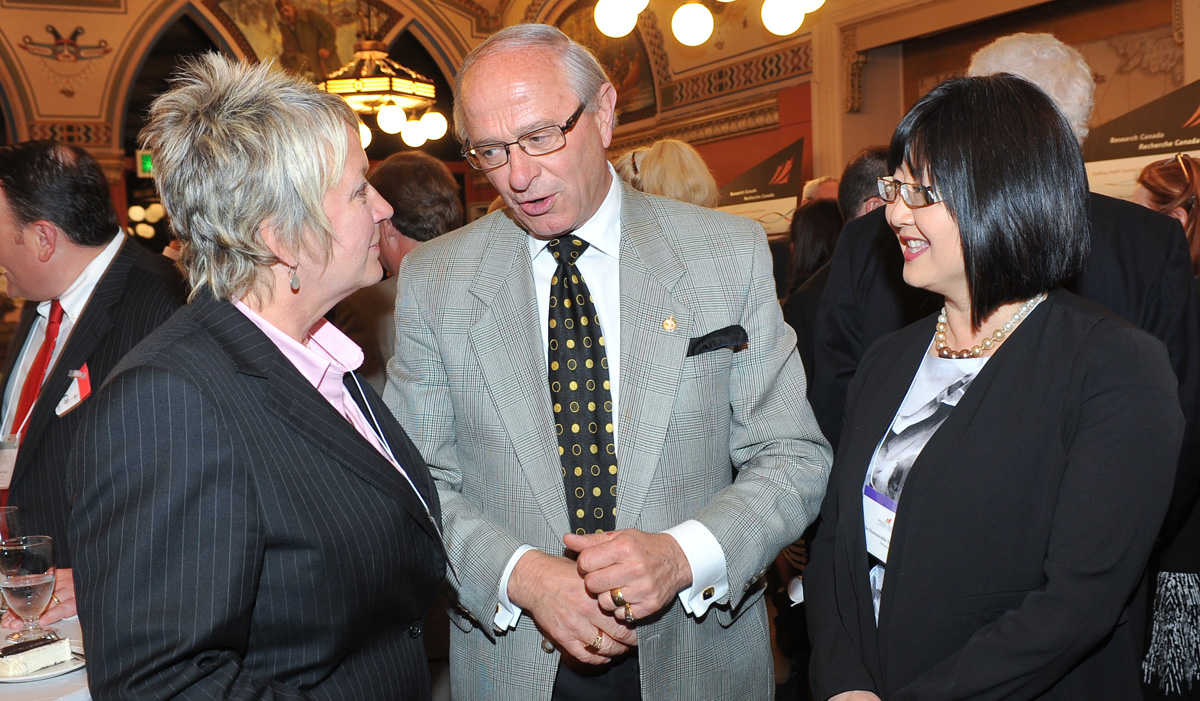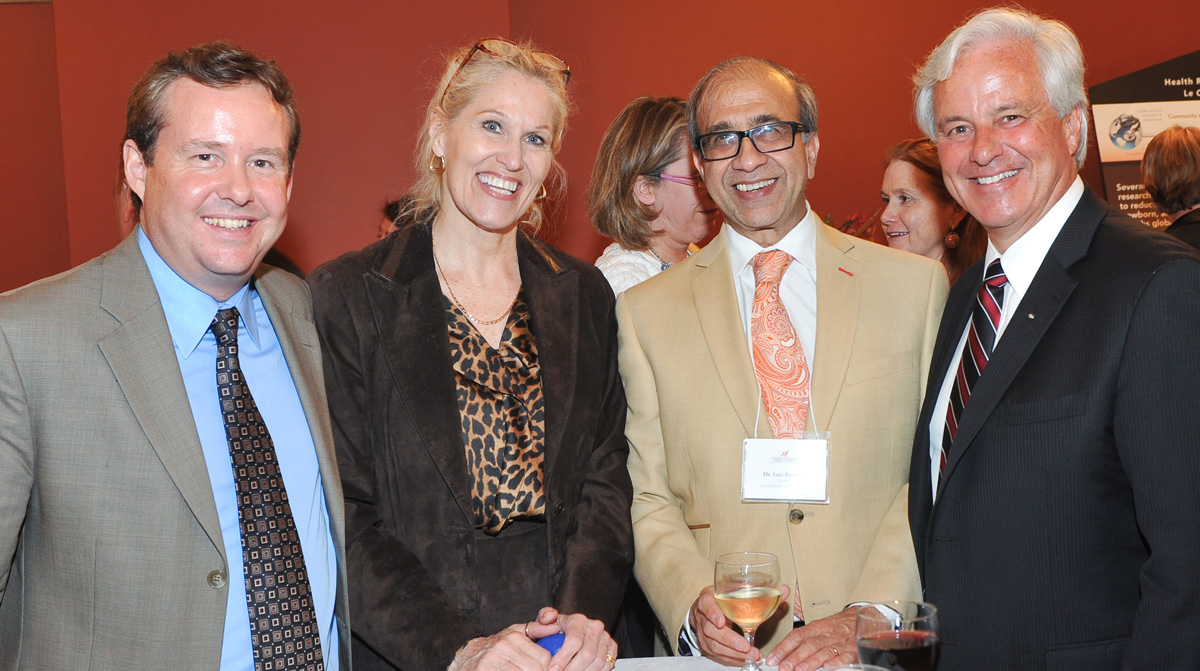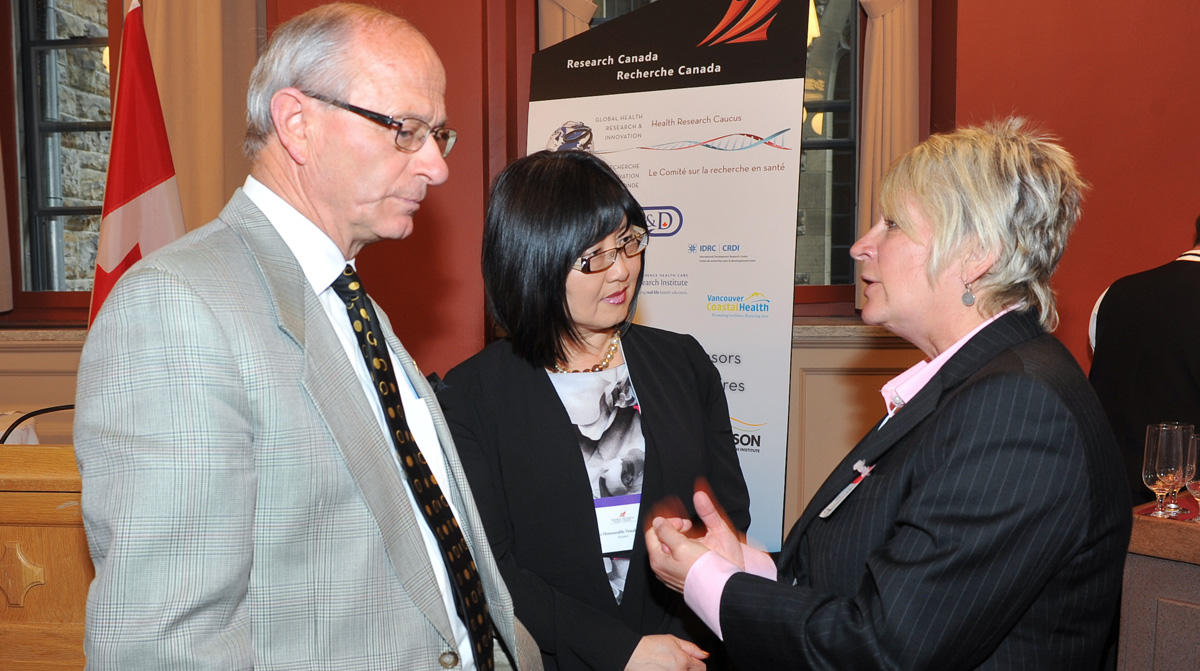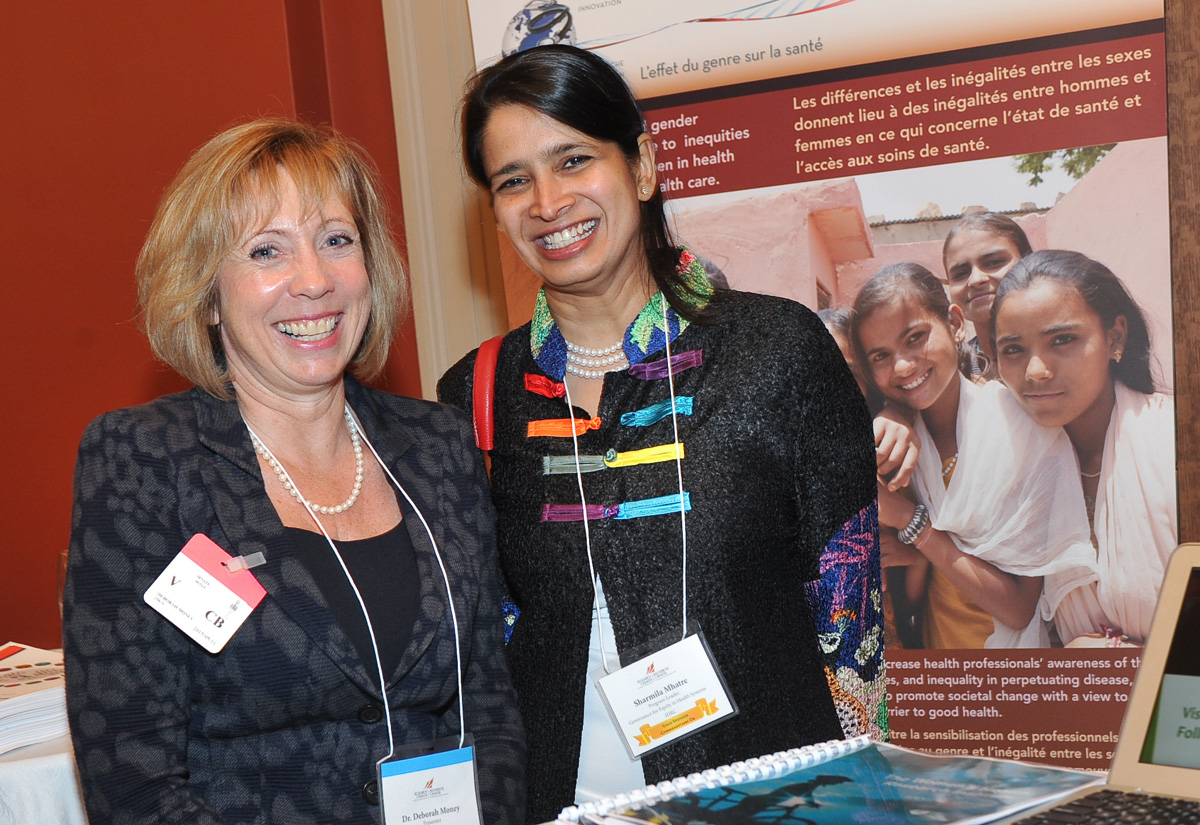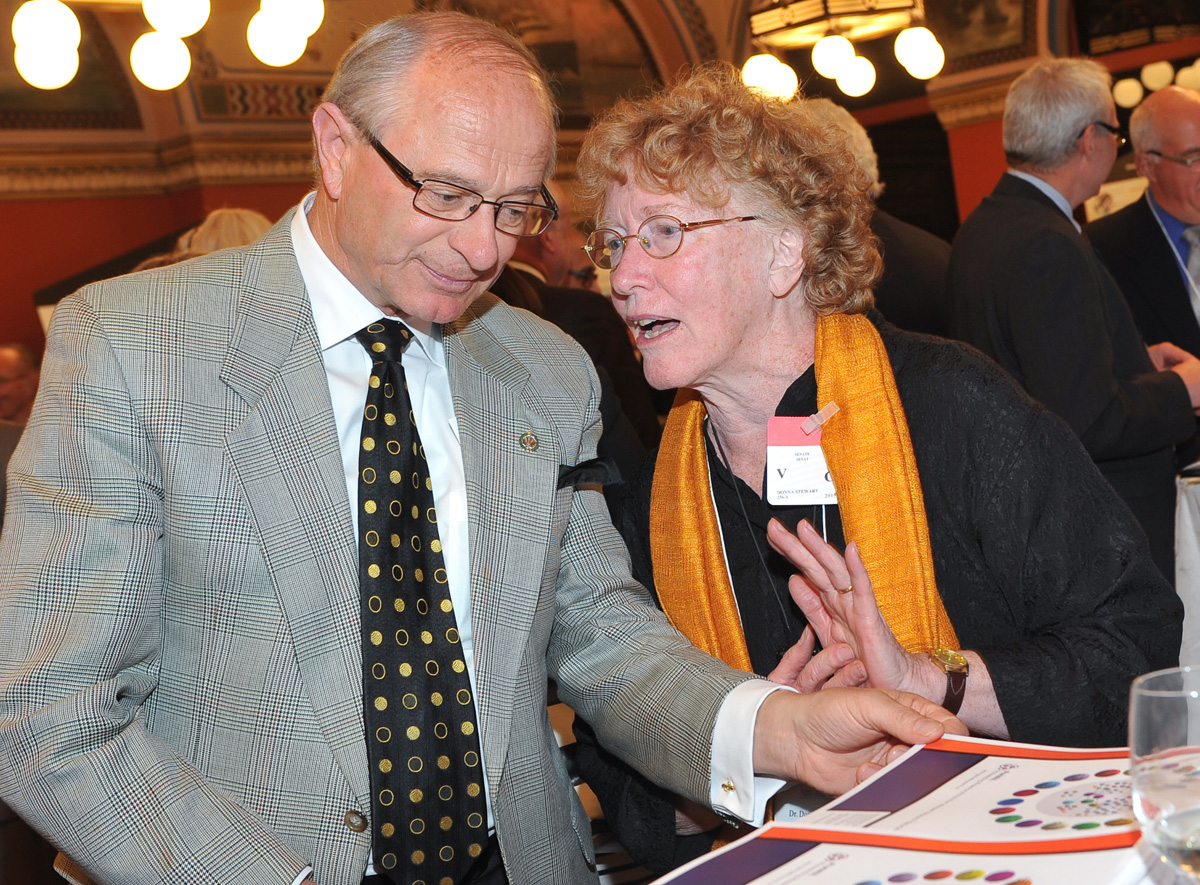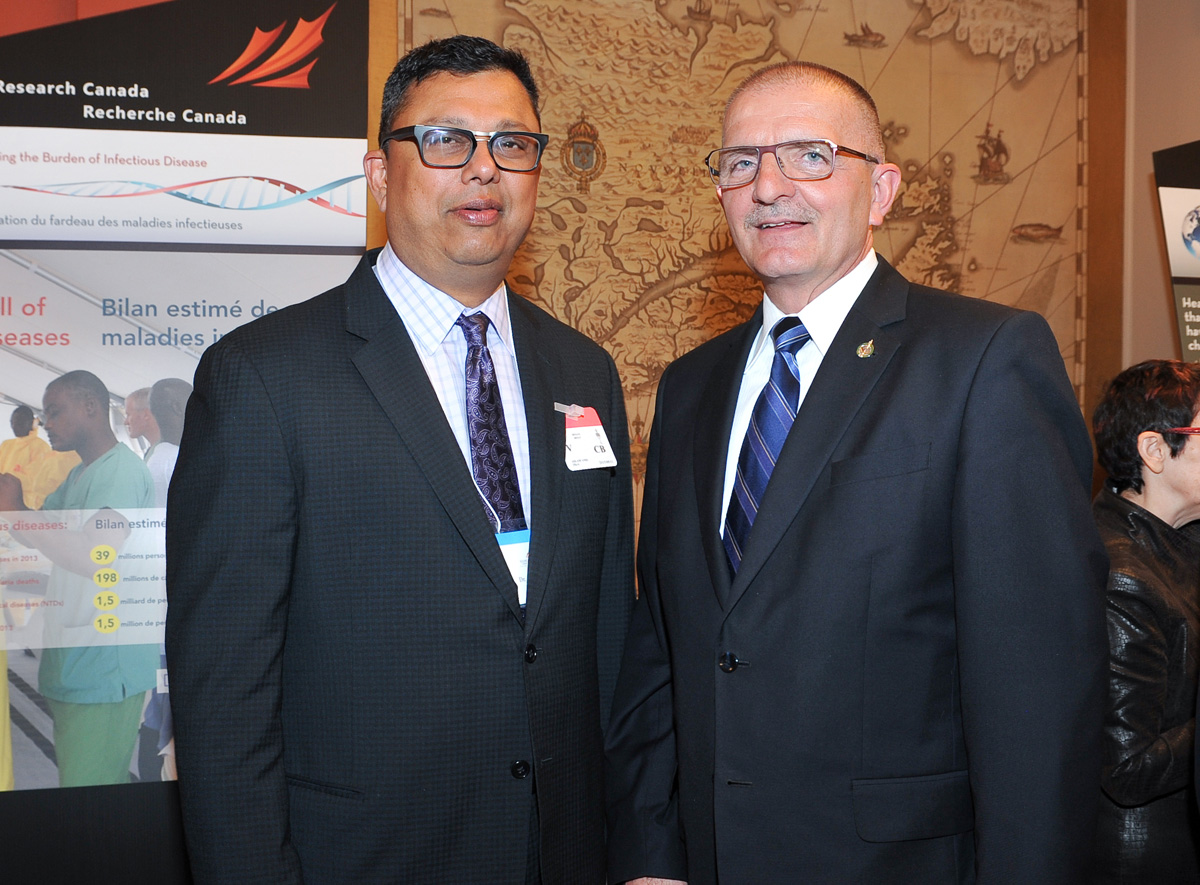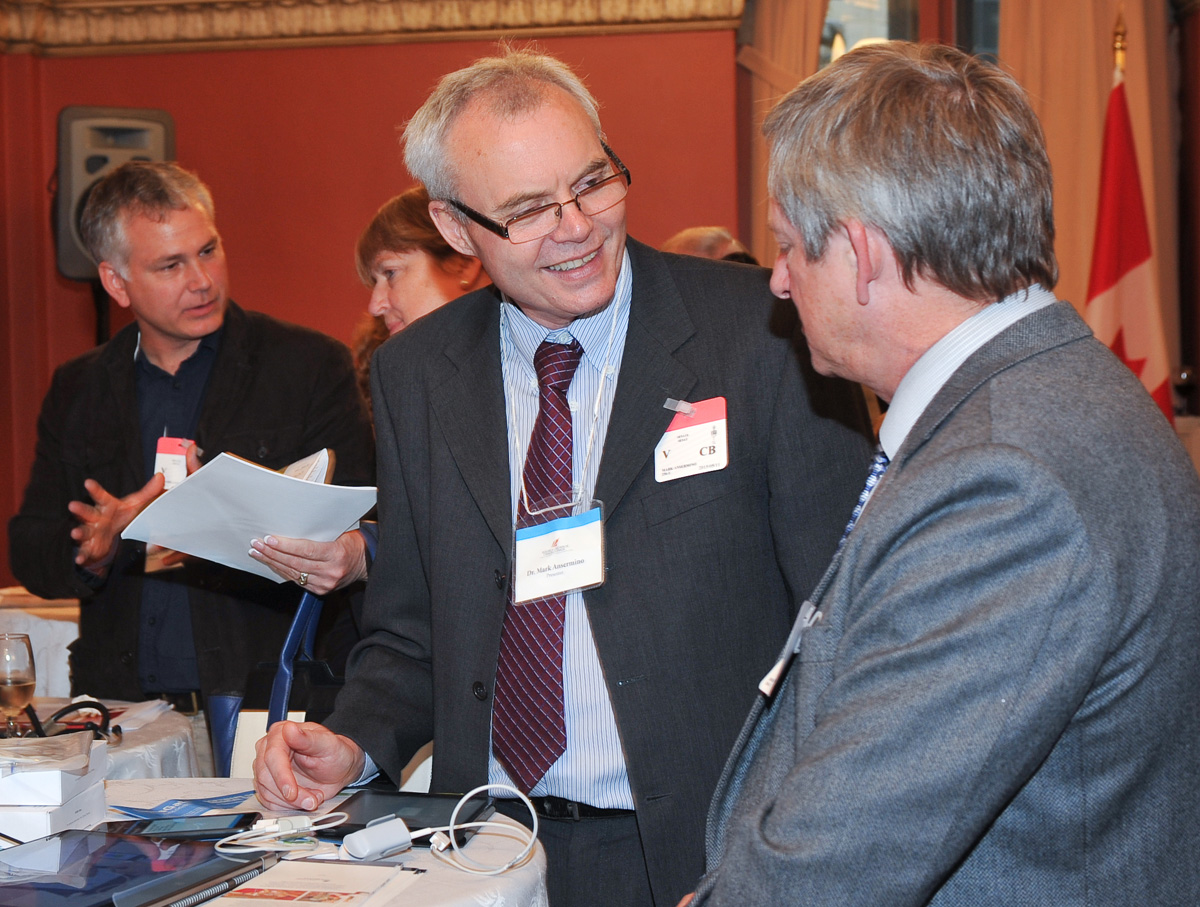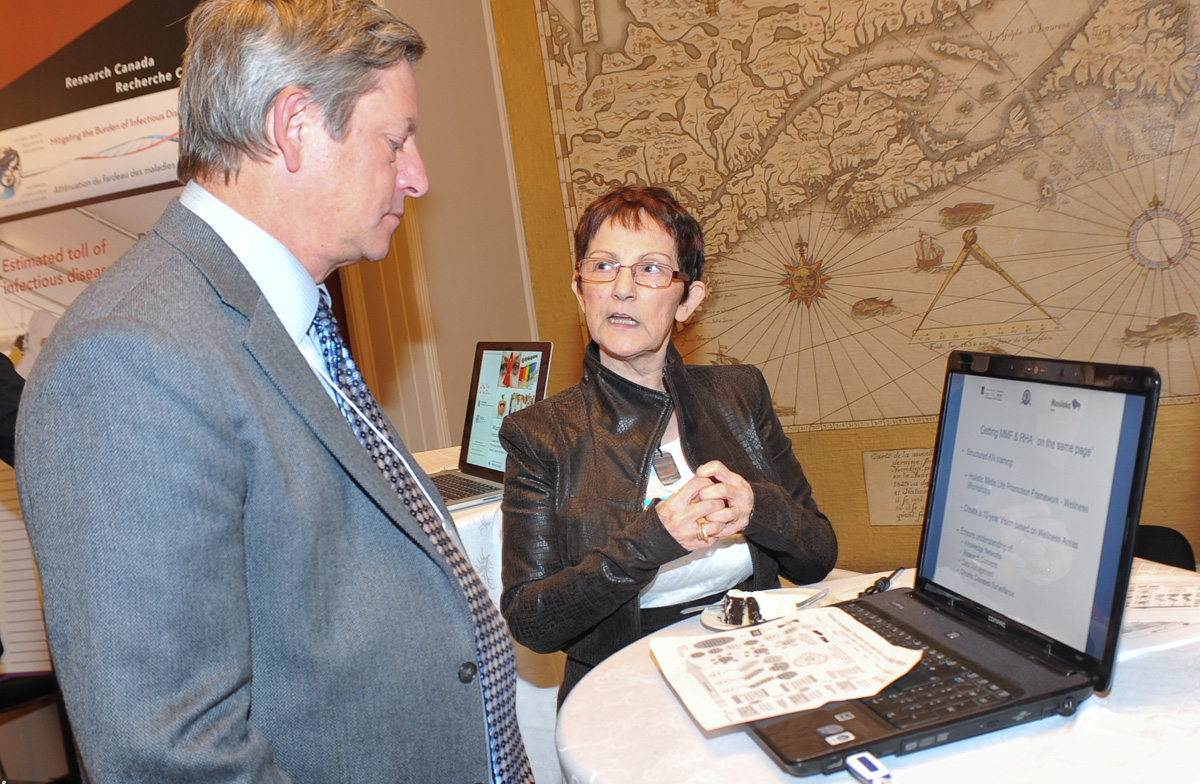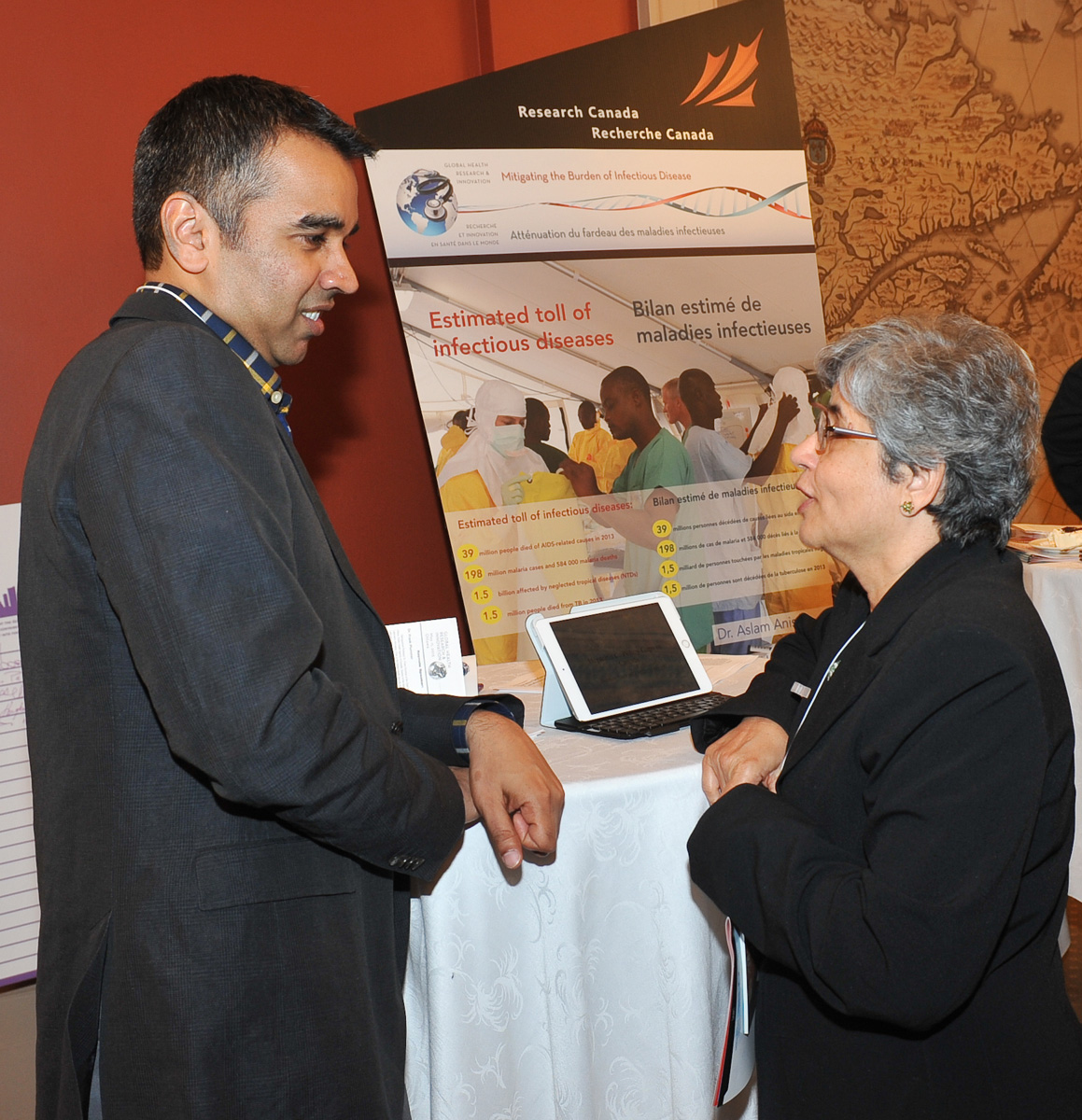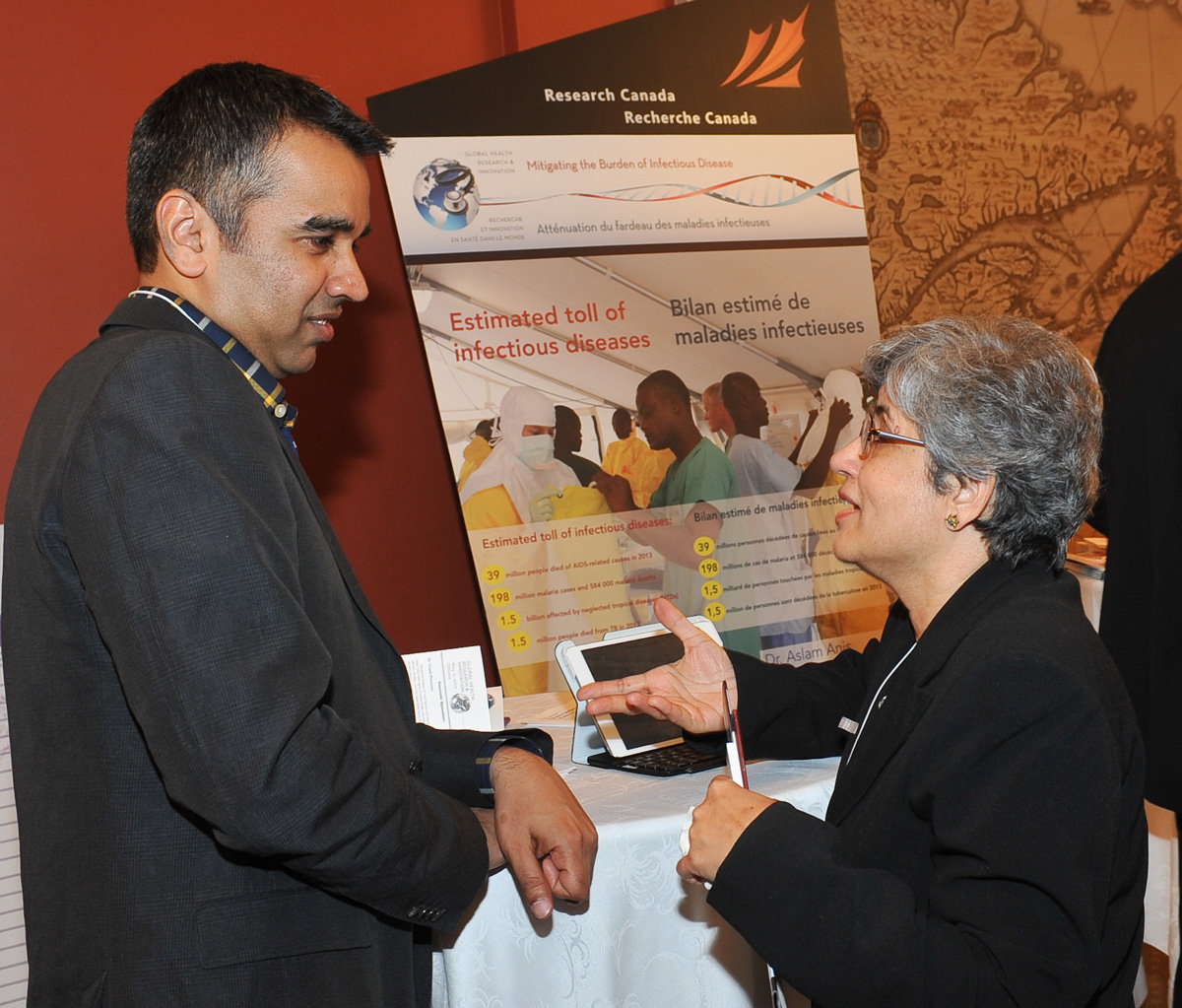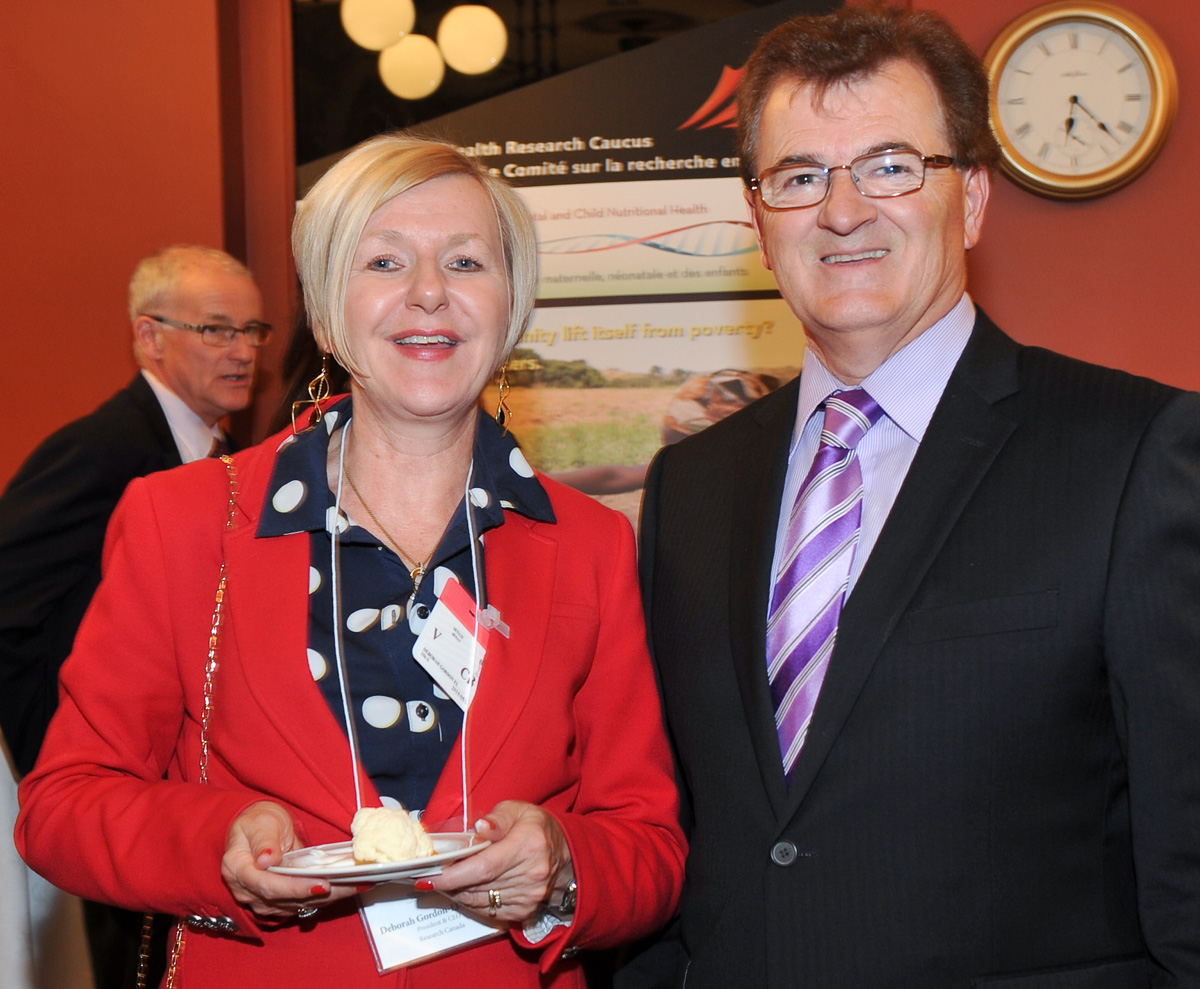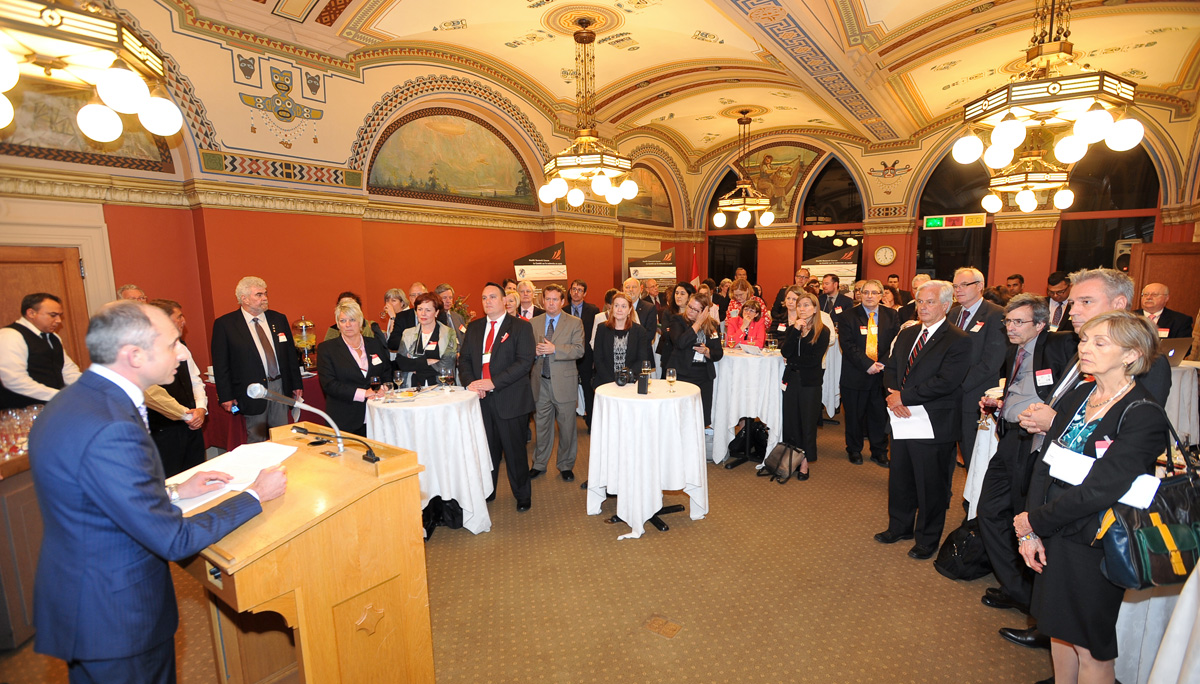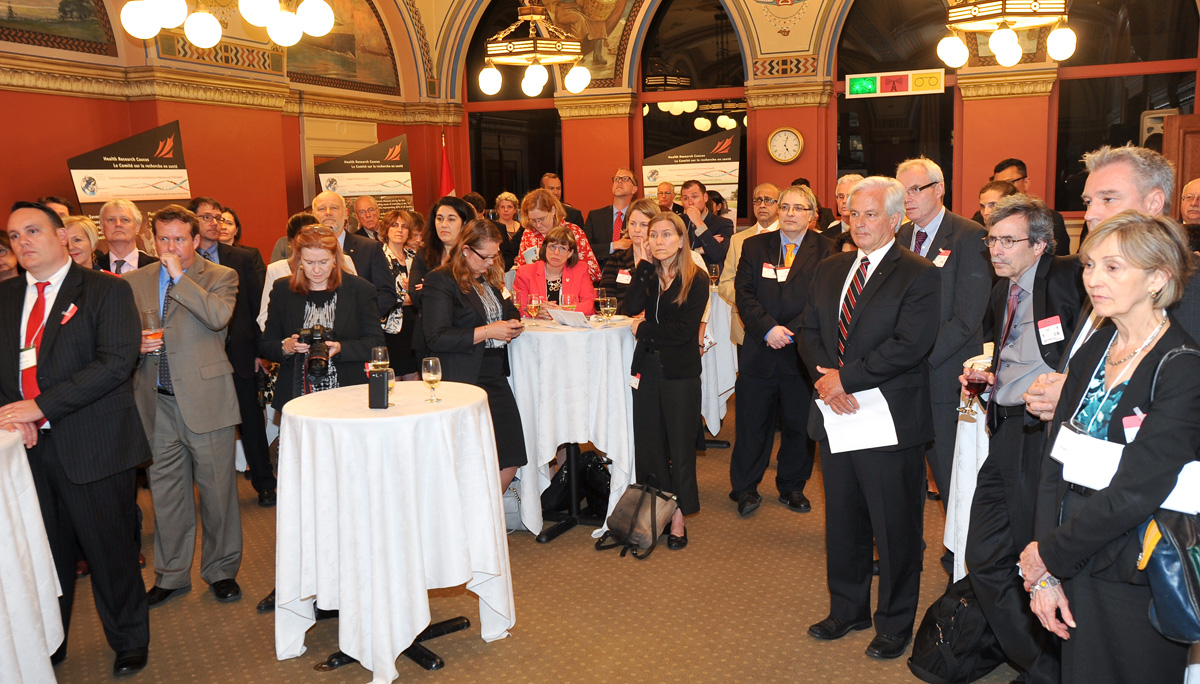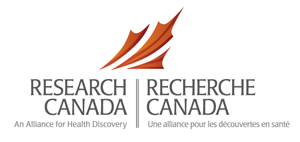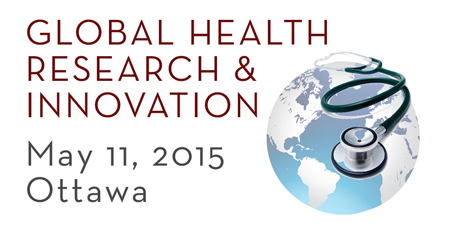HRC Global Health and Innovation
Hosted by the Hon. Senator Kelvin K. Ogilvie
Co-hosted by the Health Research Caucus Vice Chairs
Ms. Carol Hughes (Algoma-Manitoulin-Kapuskasing) and
Dr. Kirsty Duncan (Etobicoke North) and
The Chair of Research Canada, Dr. Ryan Wiley
The Health Research Caucus event on Global Health Research and Innovation hosted by the Chair of the Caucus, Senator Kelvin K. Ogilvie, and Vice-Chairs, Ms. Carol Hughes and Dr. Kirsty Duncan, will be held on Parliament Hill on May 11th, 2015.
Canada has a role to play in ensuring not only that Canadians remain healthy, but that the world becomes healthier through evidence-based health development.
Around the world, millions of people die every year from communicable diseases like malaria, tuberculosis and HIV/AIDs as well as from non-communicable diseases like cardiovascular diseases – 17 million, cancers – 7.6 million, respiratory diseases – 4.2 million and diabetes – 1.3 million.
Canada has responded through a number of initiatives such as the Global Health Research Initiative—a partnership among CIHR, the Canadian International Development Agency (CIDA), the International Development Research Centre (IDRC) and Health Canada—the Canada-HOPE Scholarship Program, the Global Indigenous Health Research Initiative, the Grand Challenges in Global Health initiative with the Gates Foundation. The Canadian Institutes of Health Research (CIHR) is on the frontlines of these initiatives, and through its Institute of Gender and Health, is supporting research on gender in relation to globalization and health.
Please join us on May 11, 2015 between 4 and 7 pm to meet the researchers at the centre of Canada’s contribution to Global Health Research and Innovation. This Health Research Caucus event will profile the research and innovations being developed in both communicable and non-communicable disease areas at Research Canada Member, Supporter and Partner institutions and companies across the country.
Keynote Speaker:
Dr. Frank Plummer, University of Manitoba; Scientific Director, National Microbiology Laboratory, Health Canada.
RESEARCH CANADA SENATE OF CANADA May 11th 2015 (brief remarks)
Introduction 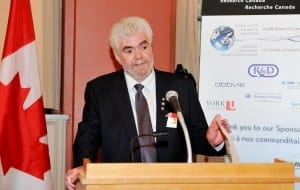 I would like to thank Research Canada and Senator Ogilvie for organizing this Caucus and inviting me to speak at it.
I would like to thank Research Canada and Senator Ogilvie for organizing this Caucus and inviting me to speak at it.
It’s good to be here.
The researchers represented here are an impressive bunch. They are a small sampling of what is going on in global health research led by Canadians – both in Canada and abroad
Rich History
As many of you know, Canadian leadership in global health research is strong. It is not new.
While the term is relatively new, Canadians have been active and effective in this field for a long time – from the discovery of insulin by Banting and Best at the University of Toronto, to the work of Allan Ronald who had a vision for a “twinned” relationship between the Universities of Manitoba and Nairobi to prevent and control infectious diseases, to Prabhat Jha’s work on vital statistics in India.
Career
My own career has been all “global health” research and clinical practice – from training at the CDC in Atlanta Georgia, to 17 years living in Africa establishing the Manitoba-Nairobi HIV collaboration, to 15 years directing and building the National Microbiology Laboratory in Winnipeg.
And, it’s been both a surprising and rewarding career.
Surprising … the disease – HIV – that I have dedicated most of my career to did not even exist when I graduated medicine from the University of Manitoba. SARS, H1N1, and Ebola were other surprises nature had in store for me!
Rewarding … the “rush” of discoveries we Canadians made with our Kenyan colleagues in Pumwani – the poorest of poorest slums in Nairobi – in the mid 80s to mid 90s have saved millions of lives globally.
Notable among our discoveries include:
– Factors that contribute to heterosexual transmission of HIV; – Detection of HIV in breast milk (mother to child transmission of HIV); – Circumcision reduces HIV rates for males by 50 percent; and – Natural immunity to HIV exists.
Remarkably, we discovered among the most marginalized group of women in society – sex workers – that when exposed to HIV they maintain immunity to the disease. Even more surprising was when the exposure stops, they run the risk of seroconverting – being unable to naturally fight off the disease.
Scientific findings … that are now common knowledge!
Yet, at the time challenged conventional wisdom Our research – Canadian research – led to changes in global health prevention strategies and policy.
Not without a story or two to tell.
Despite obstacles, almost thirty years later, Canadian HIV global health research discoveries and prevention strategies are still being implemented worldwide.
Jamie Blanchard and Stephen Moses are implementing – or “scaling” as it is termed today – our collective findings in India.
It is fitting that Prime Minister Harper chose to champion maternal, neonatal and child health as an area for global health focus and impact.
Our scientific base in this field, and women’s health in general, is strong. Canadian science has much to offer the world.
The natural immunity cohort is one of the richest human resources for vaccine research on the planet. Thousands and thousands of blood samples are stored in fridges in Winnipeg. It is a global asset. There is none equal to it.
Sustainable Environments
Equally rewarding, is that, as Canadians, we did not simply go to Africa to “discover”.
With Allan Ronald’s vision, faith and guidance in hand, we went there to build – to build a sustainable clinical environment in which talented Kenyans were further trained to diagnose and treat infectious diseases, while contributing to a peerless global health research environment. The Kenyan doctors, nurses and laboratory technicians that now run the clinic in Pumwani, and work with us on HIV research in Manitoba, are among my proudest career achievements.
Joshua
Dr. Joshua Kimani, the clinic head, is someone all of Canada can be proud of. Partly trained at the University of Manitoba, he leads a highly competent team of Kenyans treating thousands of patients annually. In his search for solutions, he recently opened the first health clinic for gay men in Kenya.
Long Term Endeavour
Global health research is a long-term endeavor.
There are no quick fixes.
The Ebola research that started at Canada’s National Microbiology Laboratory 15 years ago, prioritized for funding by Defence post 9/11, and delivering promising prevention therapies (VSV-Ebov vaccine and ZMapp) in 2010/11 is illustrative of this.
The Red Queen
Further, as one discovery is made in global health research, new challenges always present themselves.
As I often like to tell young scientists entering the field of infectious diseases, you have to act like the Red Queen:
“keep running faster to stay in the same place” Which brings me back to some concluding remarks on global health research.
Definition
I know there are a lot of definitions out there.
My definition is a simple one.
Global health research is research on the great health challenges of the world (AIDS, TB, AMR, diabetes), performed in Canada (eg. malaria research in downtown Toronto, Ebola virus research in Winnipeg) or in low and middle income countries (HIV prevention in Kenya, vital statistics project in India).
Global health research – as Bill Gates has recognized and rewarded Canadians for – does not have to occur outside Canada’s borders to have impact.
In fact, the scientific resources and skills we have in Canada often accelerate impact. This, the late Jim Flaherty understood when he established the Development Innovation Fund and Grand Challenges Canada in Budget 2008 to:
“support the best minds in the world as they search for breakthroughs in global health and other areas that have the potential to bring about enduring changes in the lives of the millions of people in poor countries”.
Growth of Field
In the past 15 years the activities in global health research have grown tremendously in Canada. The themes of today’s Caucus illustrate this. They are of course:
• Maternal, neonatal and child nutrition; • Community and institutional contributions to maternal and child health; • Mitigating the burden of infectious diseases; • Building health systems to ensure global health; • Global chronic diseases; and • Gender and health.
Benefits
Further, the benefits of global health research are many. They include:
One, “achieving humanitarian goals around health and development” – delivering real, significant and long-lasting change in the lives of people living in developing nations, as our HIV discoveries have delivered;
Two, “global leadership” – the potential to elevate our role in the global political environment through exporting our scientific knowledge to others in need and adding to global health security. Our work on H1N1 with Mexico, Cholera genetic sequencing with Haiti, and Ebola with East Africa are examples of this;
Three, “maximizing the impact of ODA dollars” – discovering new ways to approach health issues that can be adopted globally. Rich Lester’s work at the University of British Columbia on using text messaging to improve therapy compliance is an example of this. ODA dollars spent on health research leads to highly sustainable outcomes. When knowledge generated through research is translated into policy, the impact is forever.
The Fourth benefit is “scientific opportunity and Canadian health security” – Ebola prevention, for example, is not easily studied in Canada. To protect Canadians and the wider global community from this health and potential bioterrorism threat, we must collaborate with others, where the disease is endemic. We must travel outside our borders. We must engage globally in our research.
A fifth benefit is “building the Canadian brand” in other countries and creating good will towards Canada; with a multitude of positive research, health, diplomatic, trade and economic benefits.
Conclusion
Finally, I would like to thank all the agencies – government, non-government, academic, private and philanthropic – that provide funding to keep the Canadian global health research environment strong.
Our success today is through the efforts and support of many.
I will close with a statement that I tell all that visit my research sites.
The purpose of science and research is not to study the world, but to change it.
Program:
Maternal, Neonatal and Child Nutritional Health
Want to help a community lift itself from poverty? Start with the mothers. Research shows that improving maternal and child health including enhanced nutrition for mothers and their children is essential for helping communities lift themselves out of poverty. Since 1990, maternal deaths worldwide have dropped by 45 percent, but every day about 800 women die from preventable causes related to pregnancy and childbirth. Almost all of these deaths occur in low-income settings as a result of conditions that include severe bleeding, infection, high blood pressure, and complications during delivery.
Maternal health is closely linked to newborn survival. Each year, 2.9 million newborns needlessly die within their first month and an additional 2.6 million are stillborn. The main causes, which are preventable and treatable, are complications due to prematurity, complications during delivery, and infection.
Most maternal and newborn deaths can be prevented using an integrated approach focused on serving some of the hardest-to-reach populations with affordable, appropriate, and sustainable solutions for improved health.
Dr. Gregor Reid, BSc Hons, PhD, MBA, ARM CCM, Dr HS, FCAHS
Human Microbiome, Probiotics and Nutrition
Professor of Microbiology and Immunology, and Surgery at The University of Western Ontario and Endowed Chair in Human Microbiome and Probiotics at the Lawson Health Research Institute. He holds an Honorary Doctorate from Orebro University in Sweden, and is an inductee in the Canadian Academy of Health Sciences.
His research primarily focuses on beneficial microbes for women, and he has developed novel probiotic therapies used by several million people around the world. He has been a pioneer for probiotics and provided advice to the World Health Organization, United Nations Food and Agricultural Organization, Health Canada and NIH. This included setting the definition for probiotics in 2001 which has since been embraced worldwide, and assisting Canada become a leader in the regulation of health claims. His work set the foundation for widespread use of probiotics including for women, premature babies and HIV/AIDS patients. Most recently, he showed that probiotic yogurt can reduce adsorption of highly toxin environmental pollutants in pregnant women and children. He co-established the Western Heads East community kitchen program in east Africa which along with Yoba-for-Life provides affordable probiotic yogurt to around 10,000 people every day. He has been awarded 28 patents, has 448 peer-reviewed publications, and given over 560 talks in 53 countries including at a Mini Nobel Symposium in Sweden.
Dr. Reid is supported by Gates Foundation and Grand Challenges Canada
Dr. Diego Bassani, Neonatal Survival
Diego Bassani is a scientist at The Hospital for Sick Children and an assistant professor at the Department of Pediatrics and with the Dalla Lana School of Public Health at the University of Toronto. Dr. Bassani received an M.Sc. and a PhD in epidemiology from the Universidade Federal de Pelotas, Brazil. He has conducted important research on the causes and distribution of child deaths in India, coverage of health interventions at the sub-national level and identification of risk factors for child mortality. He has produced work on the impact of policy changes on child health, survival and development. Dr. Bassani currently works on international projects in maternal and child health epidemiology in multiple countries. The work is done in collaboration with the Centre for Epidemiological Research in Pelotas, Brazil, where Dr. Bassani is a co-PI in birth cohort that will follow approximately 4,000 children born in the city in 2015. He also works in collaboration with the Department of International Health at Johns Hopkins University and with Saving Newborn Lives in South Africa and Uganda, where Dr. Bassani is going to scale up an intervention to improve survival during delivery by improving the quality of care and promoting the use of simple technologies, such as the wind-up fetal heart monitor. He also works with the Aga Khan University in Kenya and Pakistan to test a neonatal survival kit for home deliveries.
Community and Institutional Contributions to Maternal and Child Health
Several decades of research have contributed to reductions in maternal, newborn, and child deaths globally; however, critical health system knowledge gaps remain requiring community- and facility-based interventions, the purpose of which is to improve equity for women and children within these existing health systems worldwide.
These solutions include but are not exclusive to the following research areas:
- High-impact community-based interventions: implementing and evaluating technologies and services that directly affect maternal, newborn, and child health, by working through the communities in which they live
- Quality facility-based interventions: ensuring that high-quality health care is delivered in clinics and hospitals
- Policy environments to improve health services and outcomes: working with policymakers and decision-makers to help make the best health policy decisions, and
- Human resources: identifying how nurses, doctors, and other health professionals can better deliver the care that is needed.
Dr. Michaela Hynie, York University,
Community-Based Intervention for Maternal Mental Health
Michaela Hynie is social and cultural psychologist in the Department of Psychology, York University, and the Associate Director of the York Institute for Health Research (YIHR). She is a former Chair of the Department of Psychology (Atkinson Faculty, York University) and Associate Dean (Research) in the Faculty of Health (York University). Dr. Hynie is interested in engaged scholarship; working in partnership with students, communities and organizations on research to address complex social issues. Dr. Hynie’s work falls into three related areas. The first is culture, migration and health inequities. The second is social integration for refugees. The third is the relationship between different kinds of social connections (interpersonal relationships, social networks) and resilience in different cultural and national contexts, and interventions that can strengthen these relationships. In 2007, Dr. Hynie founded the Program Evaluation Unit in the YIHR to support not for profit organizations in conducting program evaluations, with an emphasis on participatory evaluation. Dr. Hynie’s work has been funded by the Social Sciences and Humanities Research Council, Grand Challenges Canada, the Canadian Institutes of Health Research, the Lupina Foundation and through evaluation contracts from a range of agencies in the health and human services sectors. An interdisciplinary researcher, Dr. Hynie’s work has been published in journals specializing in Migration, Nursing, Psychology, and Social Work and an invited speaker on a range of topics including refugee integration, community-university partnerships, mental health care access in newcomer communities, and multicultural research.
Dr. Hynie’s research is supported by Grand Challenges Canada
Dr. Jenn Brenner, University of Calgary
Strengthening health systems to reduce maternal and child mortality
Dr. Jenn Brenner is a pediatrician and Clinical Associate Professor at the Cumming School of Medicine at the University of Calgary. Within Canada, she has served on the Expert Panel on Canada’s Strategic Role in Global Health (2011) and is past president of the Global Child Health Section of the Canadian Paediatric Society. She is a current member of the CAN-MNCH Network Metrics Working Group. Dr. Brenner has been involved with MNCH programming in Asia, and East and Southern Africa.
As Canadian Director for Healthy Child Uganda, Dr. Brenner has led a number of maternal and child health initiatives and implementation research studies in Uganda, mainly with a community health promotion focus. Healthy Child Uganda research has emphasized better understanding the evidence base for policy-based, community-oriented MNCH interventions, including the use of community health workers, health worker training and information technology use (i.e. tablets, mobile phones) for data collection, management and use.
Dr. Brenner recently led a Muskoka DFATD-funded implementation project involving scale up of comprehensive MNCH services in two rural Ugandan districts and she is co-investigator for an “Innovating for Maternal and Child Health in Africa Implementation” research study in Tanzania (CIHR-DFATD-IDRC).
Dr. Brenner’s research is supported by IDRC, DFATD and CIHR.
Dr. Georges Danhoundo
Effects of Malaria on Infant and Child Mortality and factors associated with success of malaria prevention programs
Georges Danhoundo is a Post-Doctoral Fellow in the faculty of health sciences at York University and Part-Time Professor in the Department of Sociological and Anthropological Studies at the University of Ottawa; he is also Affiliate Researcher at the Centre of Research and Studies on Malaria (CERPAGE) in Benin, focusing on pregnant women, newborn and children. In addition, Dr. Danhoundo is Research Fellow in the Department of Tropical Infectious Diseases Affecting Mothers and Children at the Institute of Development Research (IRD) in Benin. He holds a Ph.D. in sociology from Laval University in Quebec and conducted an evaluative research on the living conditions of orphans in Burkina Faso. He also holds a master’s degree in international development from the Graduate Institute of International and Development Studies of Geneva (Switzerland) where he specialized in the social determinants of health issues in Africa. Dr. Georges Danhoundo is well acquainted with Africa and was born in Benin where he completed his undergraduate studies (anthropology) and worked for the National Institute of Statistics and Economic Analysis of Benin as well as the Graduate Institute of Population Studies of Burkina Faso, conducting health related research.
His research aims to provide accurate information on the cross-cutting factors (economic, cultural, social, institutional and political) undermining the successful implementation approaches and strategies to prevent malaria among pregnant women and children in Africa. His research creates a strategic opportunity for Canadian research to elucidate the complex variables that affect program success, so as to generate evidence for the formulation of a rational malaria prevention policy in African countries.
Mitigating the Burden of Infectious Disease
Infectious diseases disproportionately affect the poorest population in the world and contribute to a cycle of poverty as a result of decreased productivity ensuing from long-term illness, disability, and social stigma.
- According to WHO, an estimated 39 million people died of AIDS related causes in 2013. The vast majority of people living with HIV are living in low- and middle-income countries, particularly in Sub-Saharan Africa.
- In 2013, there were about 198 million malaria cases (with an uncertainty range of 124 million to 283 million) and an estimated 584 000 malaria deaths (with an uncertainty range of 367 000 to 755 000.
- Neglected tropical diseases (NTDs) are a group of parasitic and bacterial infectious diseases that affect over 1.5 billion of the world’s most impoverished people, including 800 million children. They cause severe pain, long-term disability, and are the cause of death for over 500,000 people per year.
- In 2013, 1.5 million people died from TB, including 360 000 among people who were HIV-positive
Substantial regional variations exist in the distribution of these diseases as they are primarily concentrated in rural areas of Sub-Saharan Africa, Asia, and Latin America, with geographic overlap and high levels of co-infection.
Evidence-based interventions exist to prevent and control these diseases, however, the coverage still remains low with an emerging challenge of antimicrobial resistance. Therefore, community-based delivery platforms are increasingly being advocated to ensure sustainability and combat co-infections.
Dr. Aslam Anis, UBC, Anti-retroviral therapy (ART) for persons
living with HIV/AIDS
Dr. Aslam Anis is a Professor in the School of Population and Public Health at the University of British Columbia, Director of the Centre for Health Evaluation and Outcome Sciences (CHÉOS), and National Director of the CIHR Canadian HIV Trials Network (CTN). At both CHÉOS and the CTN, Dr. Anis leads active research programs in Health Services Research, Health Economics and Pharmacoeconomics whereby he has collaborated with numerous organizations within Canada, France, Kenya, Russia, Uganda, and the UK. As an avid supporter of international capacity building, he has engaged in activities pertaining to clinical trials and knowledge translation. His team at the CTN has worked to build clinical trials capacity and mechanisms for knowledge transfer between Canadian and Russian HIV/AIDS researchers. An advanced collaboration jointly seeded by CHÉOS and the CTN was a partnership in Uganda to establish the Makerere University Clinical Trials Unit. Dr. Anis and colleagues from the BC Centre for Disease Control have also recently convened in a joint global health meeting on HIV/HCV research in Kenya, where the team worked on projects such as mHealth, a text messaging service to improve HIV adherence and retention in care. His most recent success in extending his global partnerships was obtaining grant funding from CIHR to engage Bangladeshi researchers in developing clinical trials capacity and a cohort of HIV/HCV-infected drug users. Through these global partnerships, Dr. Anis aims to inform and educate individuals on the importance of health economics research and welcomes opportunities for collaboration to improve patient outcomes.
Dr. Anis’ research is supported by CIHR/IDRC
Dr. Hemant Shah
Global Eradication of Hepatitis
Dr. Hemant Shah is an Assistant Professor, Staff Hepatologist and and Clinic Director at the Francis Family Liver Clinic, Toronto Western Hospital, University of Toronto. His clinical focus is viral liver disease and he maintains a busy teaching practice. In addition to clinical care, Dr. Shah is actively engaged in projects to develop innovative models of care for viral hepatitis, progress interprofessional collaboration and improve knowledge levels amongst primary care and specialty providers. He works with the Ontario MOHLTC in helping to guide Hepatitis C programs in the province. He is also the Director of the largest hepatology training program in Canada.
Building Health Systems to Ensure Global Health
The power of existing health interventions is not matched by the power of health systems to deliver them to those in greatest need, in a comprehensive way, and on an adequate scale. There is an urgent need to improve the performance of health systems in low- and middle-income countries.
The best measure of a health system’s performance is its impact on health outcomes. International consensus is growing: without urgent improvements in the performance of health systems, maternal deaths will stay stubbornly high despite more than two decades of efforts.
As health systems are highly context-specific, there is no single set of best practices that can be put forward as a model for improved performance. But health systems that function well have certain shared characteristics. They have procurement and distribution systems that actually deliver interventions to those in need. They are staffed with sufficient health workers having the right skills and motivation. And they operate with financing systems that are sustainable, inclusive, and fair. The costs of health care should not force impoverished households even deeper into poverty.
Dr. Judith Bartlett
Examining indigenous health work force networks as a key strategy to address health disparities among aboriginal communities
Dr. Judith Bartlett is a Metis mother, grandmother, physician, and researcher with 25 years in clinical practice, First Nations health planning, and Metis health research and planning. She completed Medicine in 1987 and a Master of Science in 2004. She is an Associate Professorin the Faculty of Medicine, University of Manitoba; and an Adjunct Scientist in the Manitoba Centre for Health Policy. Dr. Bartlett, as Founding Director of the Manitoba Metis Federation – Health & Wellness Department, engaged the University of Manitoba to partner in producing the first comprehensive Manitoba Metis population health status report. She has also completed other CIHR and PHAC funded research some of which includes chronic diseases surveillance and the knowledge translation that ensured the data was co-interpreted by Metis citizens and provincial regional health managers. Dr. Bartlett is also pleased to have been female co-chair of the Aboriginal Health & Wellness Centre of Winnipeg; where she provided many years of volunteer clinical services. She was honoured with the 2003 Aboriginal Achievement Award for health and in 2013 as a Manitoba Woman of Distinction for the YMCA/YWCA. She has been an active volunteer in more than 50 organizations over the decades. Current volunteering includes two terms on Canada’s Tri Council Panel on Research Ethics-Advisory board. As example of her diversity of interest, Dr. Bartlett has been Owner & CEO of an aerospace manufacturing company since 1999.
Dr. Bartlett’s research is supported by CIHR
Dr. Richard Lester
Using mobile information technology (cell phones) to improve patient support and health services (mHealth) in resource-limited settings
Dr. Richard Lester is the Director of the Neglected Global Diseases Initiative (NGDI.ubc.ca) and an Assistant Professor in Global Health in the Division of Infectious Diseases, Department of Medicine, at the University of British Columbia (UBC). He completed his research fellowship in HIV in Kenya (2005-2009) at the University of Manitoba and University of Nairobi collaborative, where he initiated development of an innovative mobile phone health (mHealth) service that was demonstrated in a landmark trial, WelTel Kenya1 (Lancet 2010), to improve HIV outcomes. He is co-founder of the WelTel International mHealth Society, a non-profit organization and Grand Challenges Canada $1M award winner for transitioning the mHealth service to scale in remote Kenya, and a Canadian software company. In a form of reverse innovation, Dr. Lester has introduced the WelTel service and model into the Canadian and other healthcare systems. His program’s ‘research to action’ approach has been published in top-tier medical journals, including the Lancet, the New England Journal of Medicine, and Nature, and has been featured in non-academic international and local media, such as CBC’s The National and The Economist. Dr. Lester continues to conduct studies internationally, in Kenya, Canada, and the United States, has consulted on mHealth innovations in other countries such as China, and is currently working toward developing a broad collaborative ‘centre of excellence’ for global health research and innovation in Kenya’s remote north.
Dr. Lester’s research is supported by Grand Challenges Canada
Dr. Mark Ansermino
Bench to bedside research in anesthesia monitoring and clinician decision support
Mark Ansermino is a researcher and clinician in the Department of Anesthesiology, Pharmacology & Therapeutics at the University of British Columbia (UBC). He was a Michael Smith Foundation for Health Research Scholar and is a Clinician Scientist at the Child and Family Research Institute at the British Columbia’s Children’s Hospital. He co-leads (with Prof Guy Dumont) the highly influential Electrical & Computer Engineering in Medicine (ECEM) research team. They are an interdisciplinary research team of engineers and clinicians who are developing and evaluating novel mobile health applications to improve the health outcomes of women and children around the world. As a team, they combine science and engineering to create cutting edge technology that uses clinical data, automation and smart physical sensors to extract important data features. Then, using predictive models based on large population datasets, they provide accessible decision-making support to ensure safety and quality of health care. Innovations, such as the Phone Oximeter™ (mobile phone based pulse oximeter) that gives lay healthcare workers the ability to make clinically-informed medical decisions for their patients, is improving care and patient outcomes in low-resource clinics in low and middle income countries around the world. Through our collaborations in the last 5 years, we have founded two successful UBC spin-off companies, attracted $1.6M in new PI and Co-PI funding and now lead the digital health innovation component in projects funded to over $35.3M.
Dr Ansermino’s research is supported Grand Challenges Canada
Global Chronic Disease
Chronic diseases, such as heart disease, stroke, cancer, chronic respiratory diseases and diabetes, are by far the leading cause of mortality in the world, representing 60% of all deaths. Out of the 35 million people who died from chronic disease in 2005, half were under 70 and half were women.
This invisible epidemic is an under-appreciated cause of poverty and hinders the economic development of many countries. Contrary to common perception, 80% of chronic disease deaths occur in low and middle income countries.
To address this epidemic, it is important to promote healthy living, prevent premature deaths and unnecessary disability, treat chronic diseases effectively using the latest available knowledge and making treatment available to all, especially those in the poorest settings and providing appropriate care by facilitating equitable and good quality health care.
Dr. Prabhat Jha, St. Michael’s Hospital
Addressing issues of immunization in South Asia and maternal and child health project in Ethiopia
Professor Prabhat Jha has been a key figure in epidemiology and economics of global health for the past decade. He is the University of Toronto Endowed Professor in Disease Control and Canada Research Chair at the Dalla Lana School of Public Health, and the founding Director of the Centre for Global Health Research at St. Michael’s Hospital. Professor Jha is a lead investigator of the Million Death Study in India, which quantifies the causes of premature mortality in over 2 million homes from 1997‐2014. He is co‐investigator of the Disease Control Priorities Network and the author of several influential books on tobacco control, including two that helped enable a global treaty on tobacco control, now signed by over 180 countries. He has published widely on tobacco and disease control. Earlier, Professor Jha served as Senior Scientist for the World Health Organization, where he co‐led the work on health and poverty for the Commission on Macroeconomics and Health. Previous to this, he headed the World Bank team responsible for developing the Second National HIV/AIDS Control Program in India. Notable recognitions include an Officer of the Order of Canada (2012) for services to global health and epidemiology, Luther Terry Award for Research on Tobacco Control (2012), The Globe and Mail 25 Transformational Canadians (2010), Top 40 Canadians under Age 40 Award (2004) and the Ontario Premier’s Research Excellence Award (2004). Professor Jha holds an M.D. from the University of Manitoba and a D.Phil. from Oxford University, where he studied as a Canadian Rhodes Scholar.
Dr. Jha’s research is supported by IDRC
Dr. Karen Yeates, Queen’s University
Use of mobile phones to reduce hypertension in rural Aboriginal communities in Canada and in Tanzania
Dr. Karen Yeates (MD, MPH) is an Associate Professor of Medicine and Director of Research in the Office of Global Health at Queen’s University in Kingston, Ontario, Canada. She is a global health researcher with expertise in health systems and mHealth. She coordinates a large implementation science and mHealth-based research program in Tanzania which includes multiple studies of both communicable and non-communicable diseases (hypertension, cardiovascular disease and cancer). She holds a Rising Stars in Global Health grant from Grand Challenges Canada and is co-principal investigator on 5 large research studies currently implemented in Tanzania and funded through Canadian funding agencies totaling over $4 million in funding.
Dr. Duncan Pederson, Douglas Mental Health University Institute
Trauma and Global Health: cross-cultural, ethnographic and epidemiological research on violence and mental health outcomes
Duncan Pedersen, MD, MPH Brief CV Duncan Pedersen is currently an Associate Scientific Director at the Douglas Mental Health University Institute – Research Centre. A physician, trained in public health, social epidemiology and medical anthropology, has an extensive research experience in Latin America, mostly amongst indigenous peoples and the urban poor in countries of the Andean region (Bolivia, Ecuador and Peru), the Amazon basin and Northeast Brazil. More recently, he has extended his research in global mental health to Guatemala, Jamaica, Sri Lanka and Nepal. His current interests are focused on social determinants of mental health, and include cross–‐cultural, ethnographic and epidemiological research on violence and mental health outcomes, where the issues of traumatic memory and trauma–‐related disorders, resilience, healing and coping strategies remain his most prominent concerns. He holds the position of Associate Professor, Division of Social and Transcultural Psychiatry, Department of Psychiatry at McGill University and leads the Global Mental Health Research initiative based at the Douglas Hospital Research Centre (https://www.mcgill.ca/tcpsych/research/global–‐mental–‐health–‐research). Between 1992 and 2002, he was lecturer at the Department of Social Medicine, Harvard Medical School, in Boston, USA. Dr. Pedersen has written numerous articles and book chapters in global mental health; medical anthropology; aboriginal health, traditional medicine; stigma, racism, and social exclusion; political violence, trauma, and mental health outcomes. From 2000 to 2010, he served as Senior Editor for the renowned international journal Social Science & Medicine and currently is a member of the Editorial Board of SSM, Anthropology & Medicine, Transcultural Psychiatry and Salud Colectiva.
Gender and Health
The distinct roles and behaviours of men and women in a given culture, dictated by that culture’s gender norms and values, give rise to gender differences. Gender norms and values, however, also give rise to gender inequalities. The fact that, throughout the world, women on average have lower cash incomes than men is an example of a gender inequality.
Both gender differences and gender inequalities can give rise to inequities between men and women in health status and access to health care. For example: A woman cannot receive needed health care because norms in her community prevent her from travelling alone to a clinic.
Gender norms and values are not fixed and therefore can evolve over time, vary substantially from place to place, and are subject to change. Thus, the poor health consequences resulting from gender differences and gender inequalities are not static either. Research in this area can increase health professionals’ awareness of the role of gender norms, values, and inequality in perpetuating disease, disability, and death, and to promote societal change with a view to eliminating gender as a barrier to good health.
Dr. Deborah Money, UBC
Advances in Screening and Prevention in Reproductive Cancers (ASPIRE)
Dr. Deborah Money is a Professor at the University of British Columbia (UBC) in the Departments of Obstetrics and Gynecology, Medicine, and the School of Population and Public Health. She is a subspecialist in Reproductive Infectious Diseases. Dr. Money is the Vice President, Research at BC Women’s Hospital and Health Centre, Provincial Health Services Authority and Executive Director of the Women’s Health Research Institute (WHRI).
Dr. Money was trained with a BSc in Microbiology, and an MD at UBC followed by her residency in Obstetrics and Gynecology, also at UBC. She did a clinical and research Fellowship in Infectious Diseases at the University of Washington, and returned to UBC and to the Oak Street campus as the first individual in Canada with this combined training.
In collaboration with colleagues here at UBC, Dr. Julie van Schalkwyk and Dr. Dena Bloomenthal, Dr. Money has developed an education and translational research program in Reproductive Infectious Diseases with research focused on three major areas: HIV in pregnancy, Human papilloma virus (HPV), and the prevention of cervical cancer; and most recently is leading a Canadian (CIHR/Genome BC) human microbiome project to understand the role of the vaginal microbiome in health and disease.
She is the past-President (and first non-US President) of the Infectious Diseases Society of Obstetrics and Gynecology (IDSOG), a 40 year old, US based academic society. In 2013 she was awarded the Society of Obstetrics and Gynecology (SOGC) Western Regional Award for achievement, the YWCA, metro Vancouver, Woman of Distinction Award and the Queen Elizabeth II Diamond Jubilee Medal.
Dr. Money’s research is supported by CIHR, BC Centre for Disease Control and
Foundation for Population and Public Health.
Dr. Donna Stewart, UHN
Assessing and measuring gender sensitive indicators in Peru, Colombia and Canada
Donna E. Stewart, MD is a University Professor and Inaugural Chair of Women’s Health at University Health Network and University of Toronto. Dr Stewart is a women’s health researcher, educator, author, advocate and policy advisor nationally and internationally. She is a Senior Scientist and Professor in the Departments of Psychiatry, Medicine, Obstetrics, and Family and Community Medicine and has published over 350 peer-reviewed papers, 4 books and has had over 100 peer-reviewed research grants. She is a Fellow of the Academy of Psychosomatic Medicine, the International College of Psychosomatic Medicine, the American College of Psychiatrists and a Distinguished Fellow of the American Psychiatric Association and the Canadian Psychiatric Association. She is the Zone 1 Representative and on the Board of the World Psychiatric Association, a consultant to World Health Organization, and a recent member of the Canadian Institutes for Health Research, Institutional Advisory Board of the Institute for Gender and Health. She has won numerous international awards and in 2014 was made a member of the Order of Canada-the country’s highest civilian honour.
